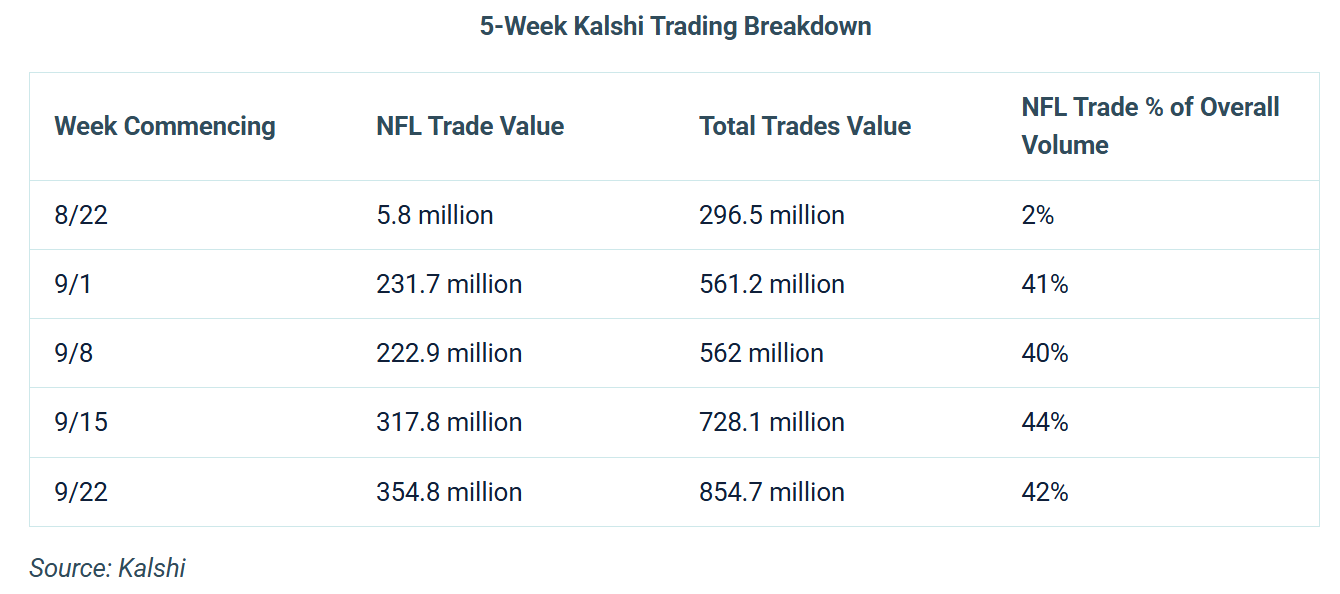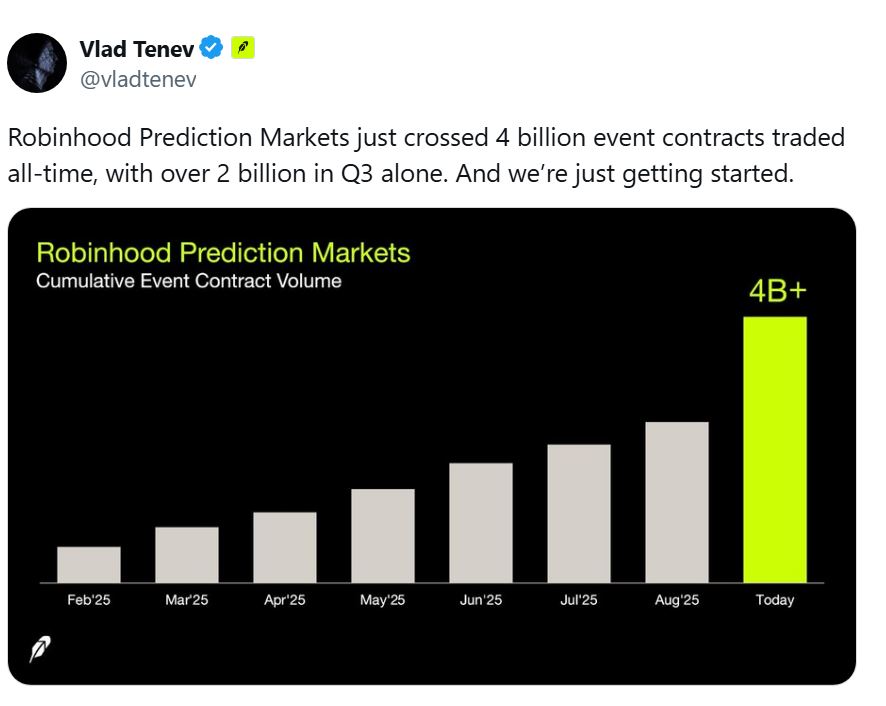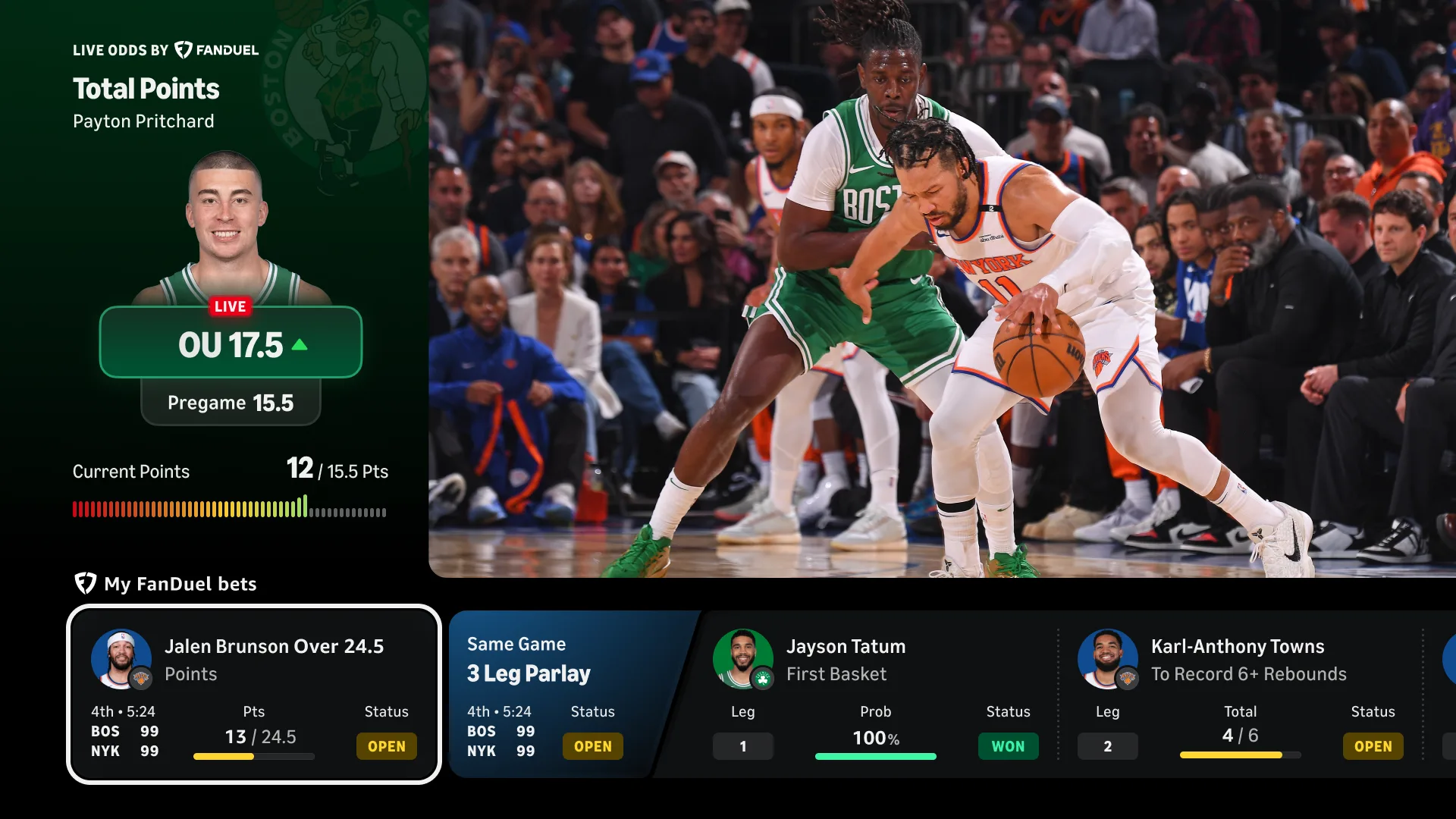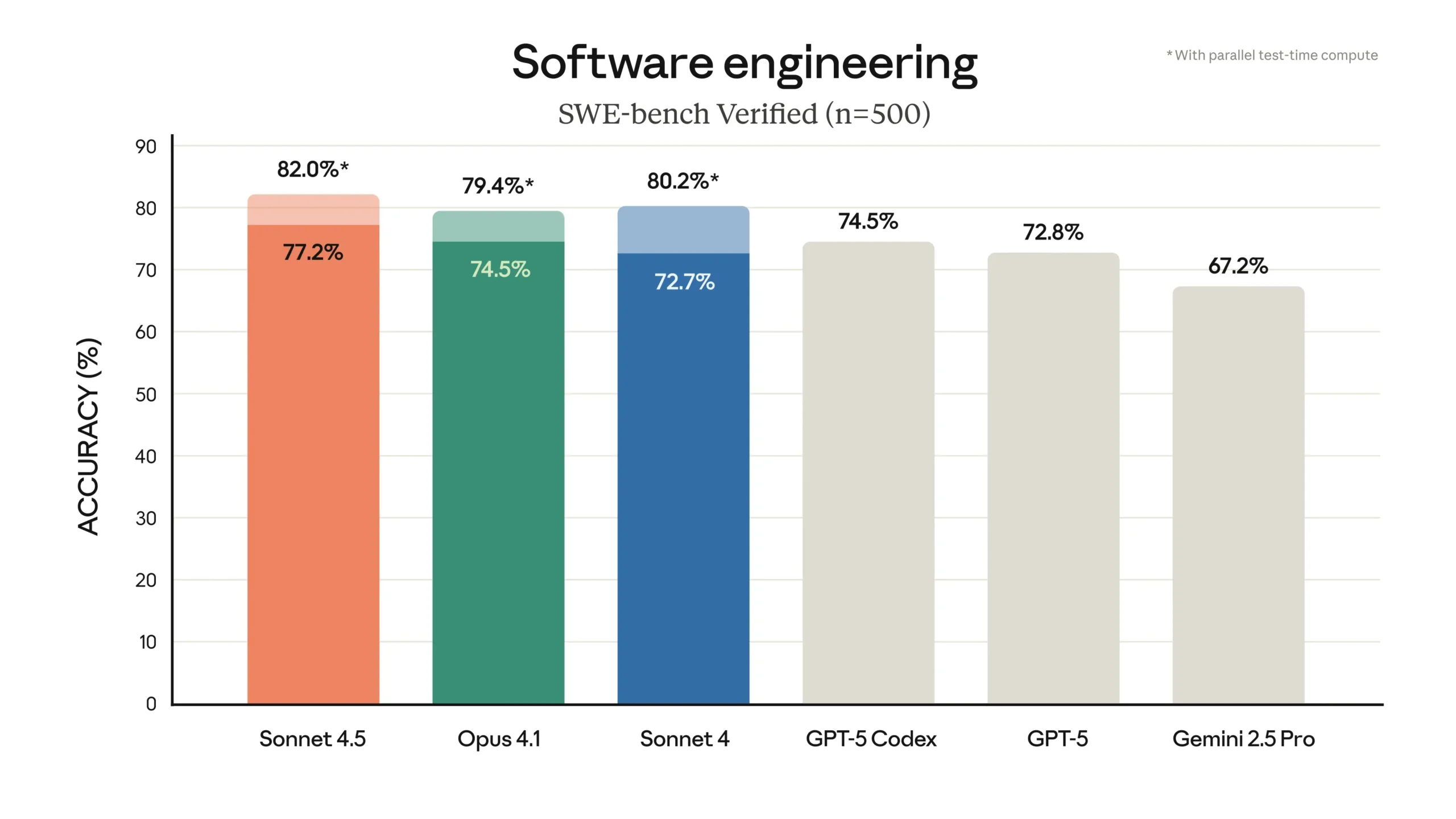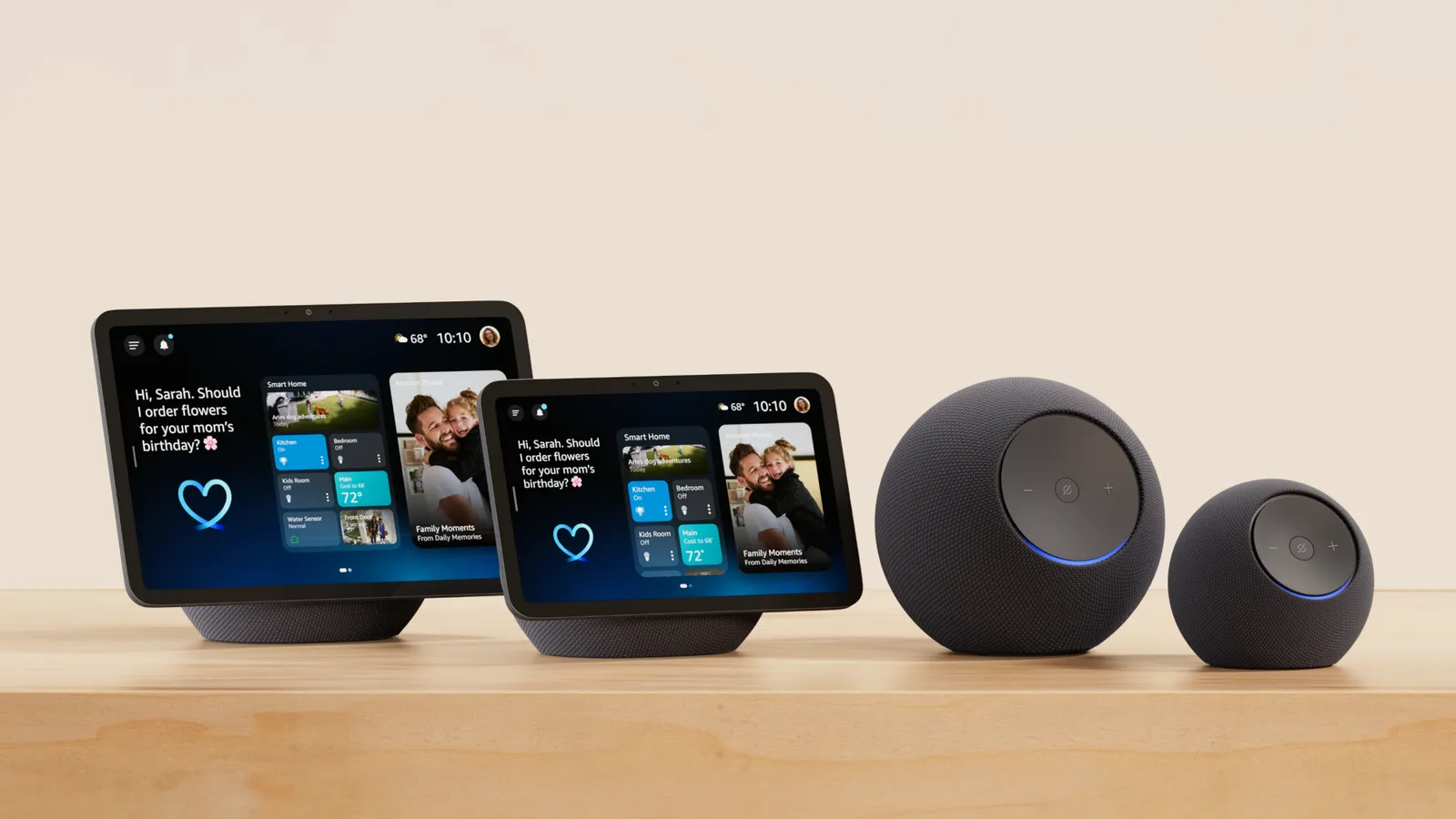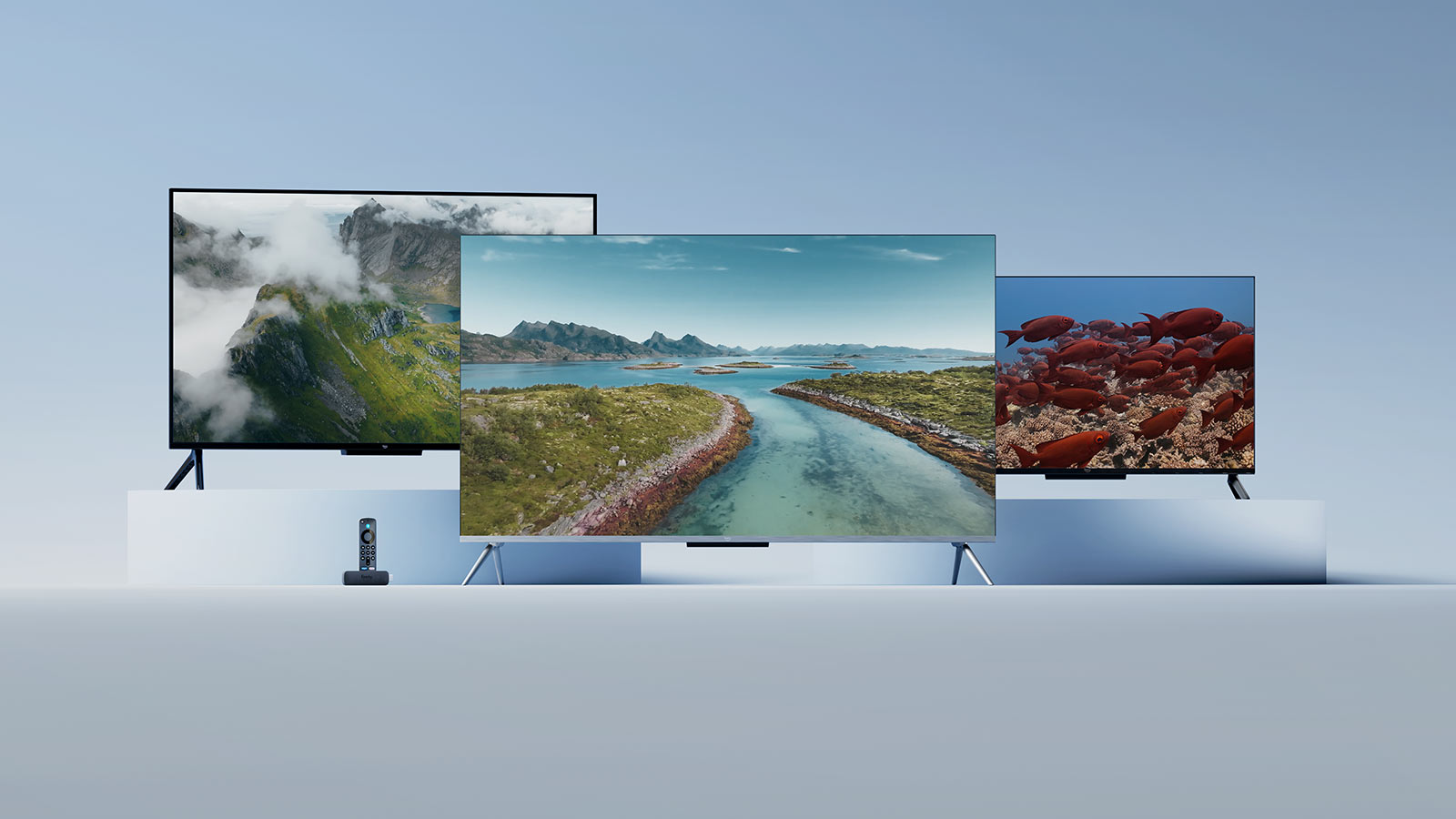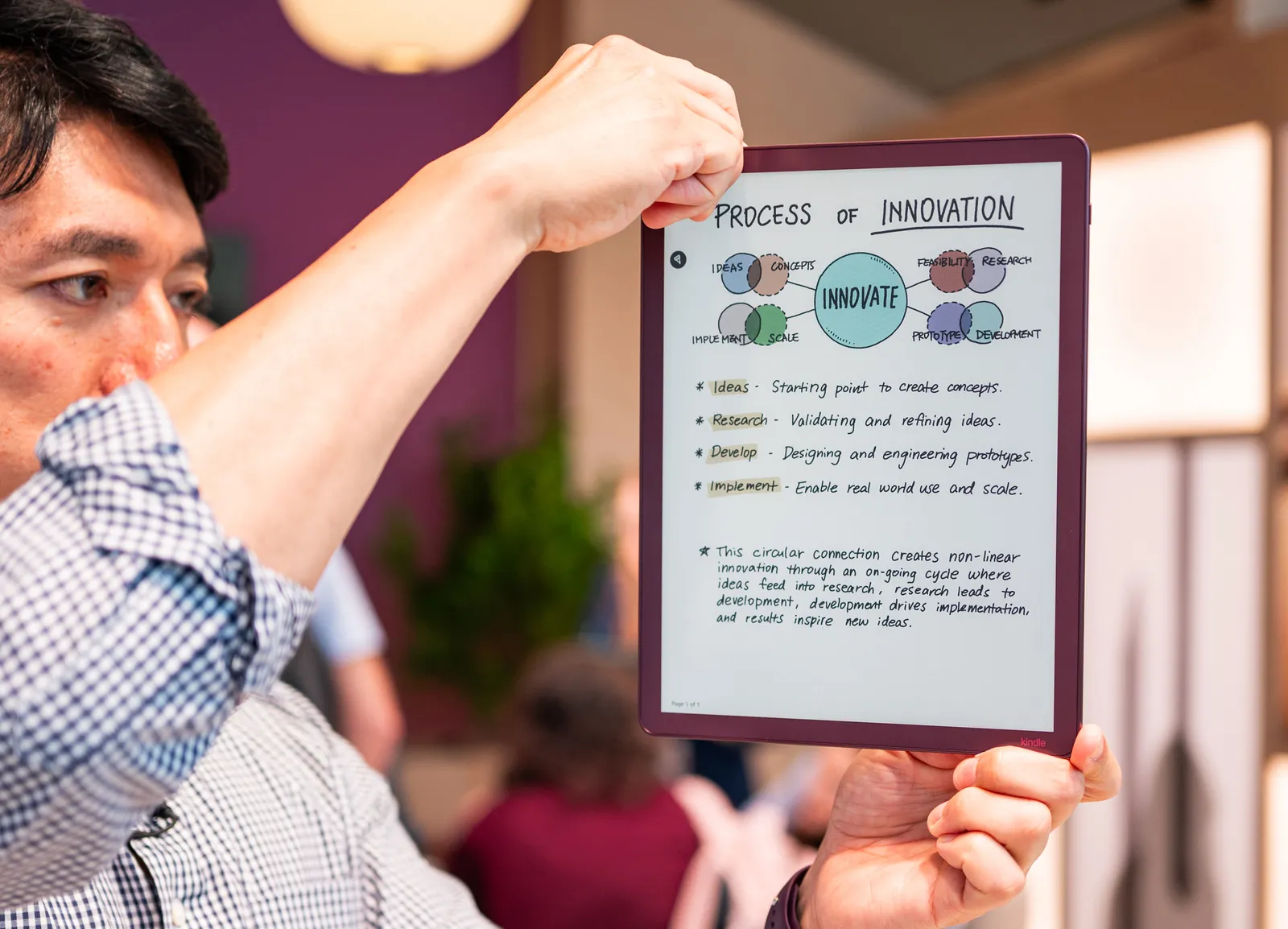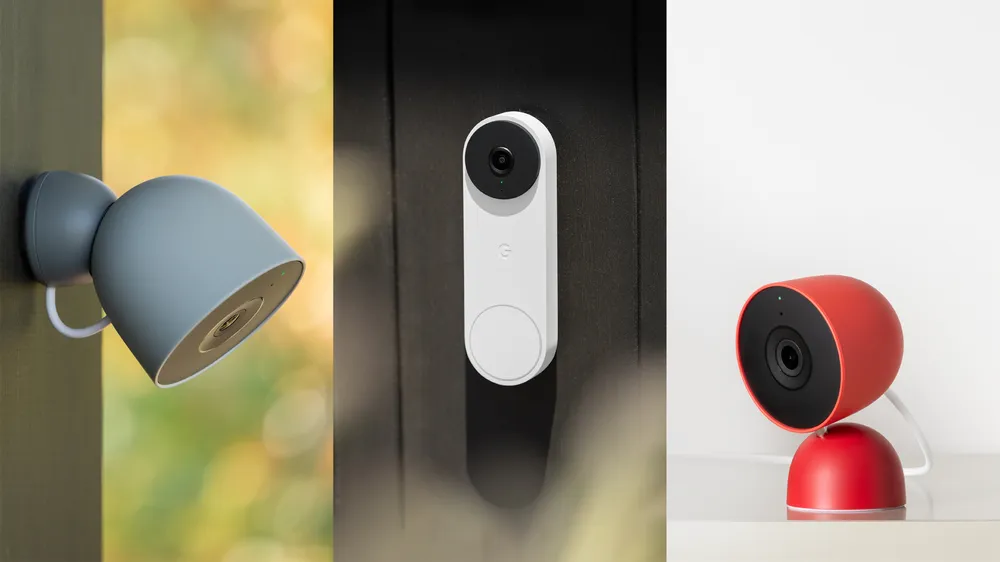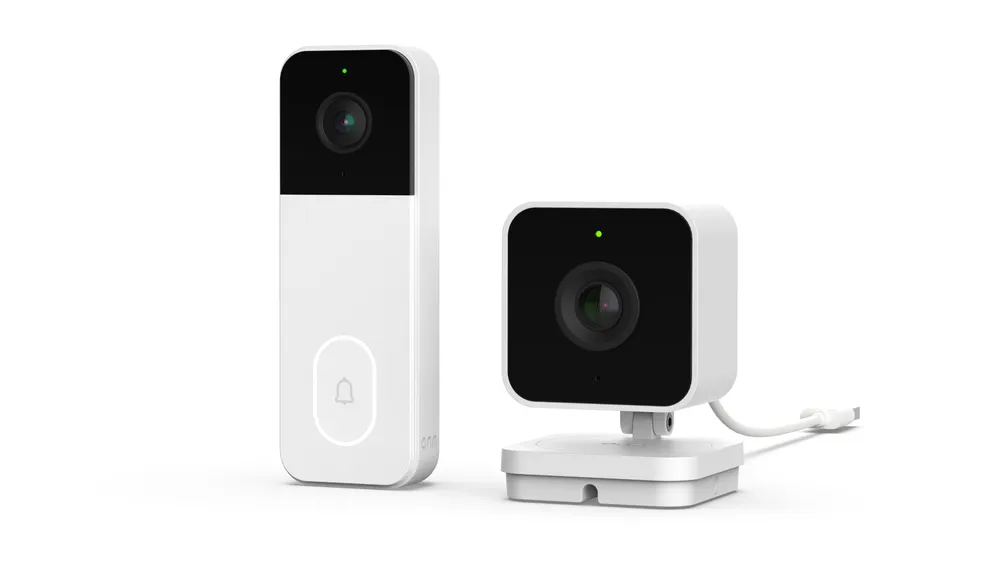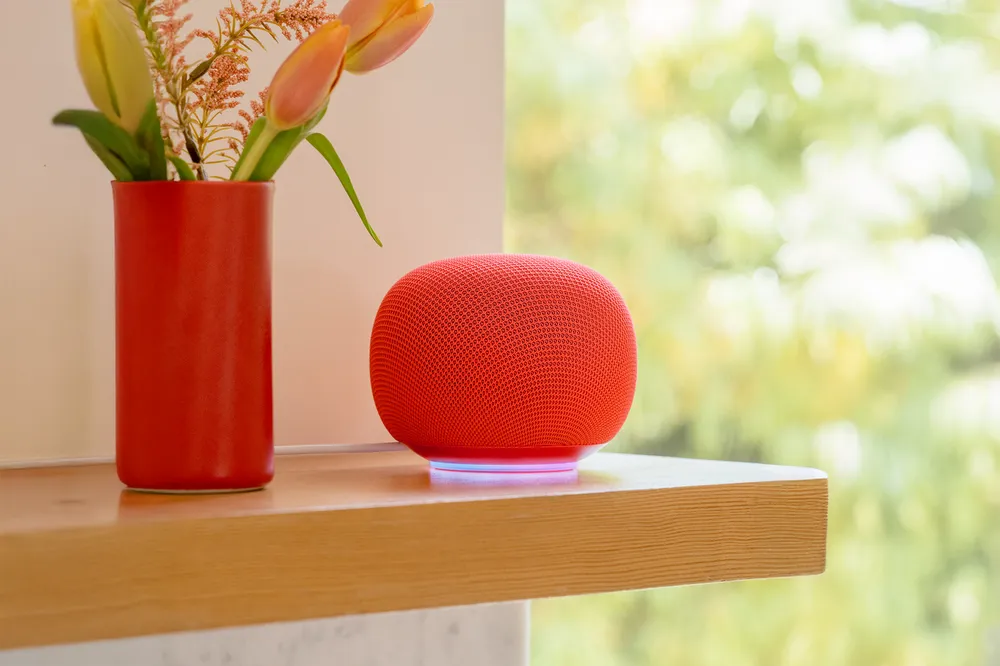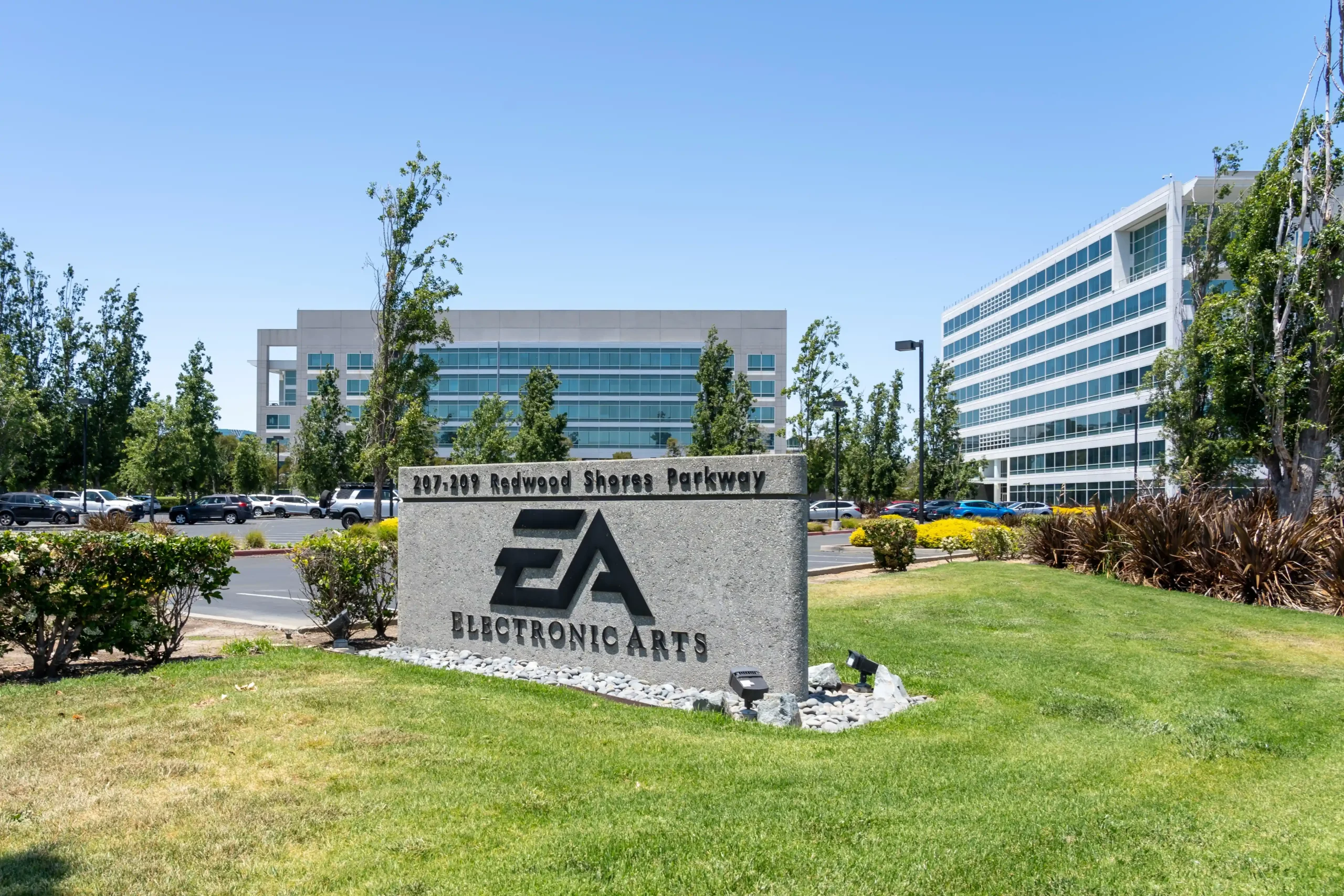
Not even a government shutdown can hold this market down! The S&P 500 and Nasdaq rallied +1% and +1.3%, respectively reaching all-time records. The gains were broad-based, and the AI trade remains intact though macro data continues to be mixed.
Key updates this week were fast and furious with several pivotal developments. See below for the themes that we focused on in this edition:
- A Strong Majority Of TMT Stocks Traded Up In Q3, But To A Lessor Degree Than In Q2
- The EA Deal Is A Huge Endorsement For The Value Of Franchise IP, Especially Sports Related
- Prediction Markets Shake Up Sports Betting Players
- This Week’s AI Power Plays
- AI Discovery Sends Ripples Through Tech
- Smart Homes Are Set To Get Even Smarter With More Ambient Intelligence
- Big Moves To Make Digital Advertising Smarter & More Efficient
- Grab Bag: EchoStar Stock Soars / CoreWeave Signs New Cloud Order / AI Actress Tilly Is Causing A Stir
A Strong Majority Of TMT Stocks Traded Up In Q3, But To A Lessor Degree Than In Q2
The doors closed on another stellar quarter of stock market gains, following the huge Q2 rebound which puts the S&P 500 and NASDAQ up a lofty +17% and +14% YTD, respectively.
Looking at performance across our LionTree Universe of ~193 stocks in the TMT and Consumer sector with $1bn+ market caps, 61% of stocks trading up in Q3 which is a strong majority But it is noting that it was to a lessor degree than in Q2 when 72% traded up.
In terms of magnitude, of those stocks that traded up, 67% trading up double-digits, which is only a tad higher than the 66% in Q2, while on the other end, of those stocks that traded down, 52% traded down double-digits, which was more meaningfully higher than the 43% that traded down double double-digits in Q2.
Which stock saw the largest gain in Q3 in our Universe? It was Opendoor, which surged a whopping +1,395% in the quarter aided by hedge fund manager Eric Jackson endorsing it, saying it could become a “100-bagger”, which energized retail investors on platforms like X and Reddit and lead to a strong short squeeze. A subsequent PIPE investment, mgmt. changes, and further institutional investor sponsorship also contributed to the strength (link). Following Opendoor, Jumia traded up +189%, and The RealReal, traded up +122%, rounding out the Top 3 best performers in Q3.
Which stock had the toughest Q3? It was Iridium Communications, which fell -42% in Q3, followed by Gogo, down -41% and Charter, down -33%, to make up the Bottom 3 worst performers.
- How did the “Magnificent 7” do in Q3? Tesla was up +40% in Q3, followed by Alphabet, up +38% and Apple up 24%; Amazon and Meta on the other hand were stagnant in the qtr
The EA Deal Is A Huge Endorsement For The Value Of Franchise IP, Especially Sports Related
This week’s $55bn buyout of Electronic Arts by Silver Lake, PIF, and Affinity Partners isn’t just the largest LBO in history, it is also a strategic bet on the enduring power of franchise IP in a consolidating gaming landscape.
EA’s portfolio of globally recognized sports titles like FIFA, Madden, and UFC sits at the intersection of gaming and sports IP, a space where few assets exist outside of media rights. The Co also has an array of non-sports games anchored by Battlefield, Apex Legends, and The Sims.
The timing of the deal is notable in that EA is “entering the most exciting release cycle in EA’s history” per CEO Andrew Wilson on the Co’s last earnings call. The FY 26 release slate includes F1 25 (May 30), College Football 26 (July 10), Madden NFL 26 (Aug 14), FC 26 (Sept 26th but the release was to mixed reviews – link), NHL 26, and of course Battlefield 6 (Oct 10th), and Skate (by the end of the fiscal year). Essentially, the Co’s business was at an inflection point and now it will have the opportunity to take these new games to a higher level with its new owners and partners.
For PIF, the deal builds on a multi-year push into gaming and entertainment, following stakes in Nintendo, Take-Two, and Scopely, among others as well as additional investments n the entertainment & sports sector. Silver Lake, meanwhile, adds EA to a growing roster of sports and media investments that includes Endeavor and City Football Group. Together, the consortium is positioning EA not just as a publisher, but also as a platform for global IP monetization across gaming, sports, and live entertainment. Bottom line, this transaction’s 25% premium and record-setting valuation reflect the scarcity of investable AAA publishers and the rising strategic value of content that is supported by loyal, global audiences.
-> EA’s stock jumped +15% on the news but closed the day flat, while Take-Two closed down -1.4%; YTD EA is up 37.7%, and Take-Two is up 39.9%
The $55bn Electronic Arts’ LBO Deal Breakdown (link/link/link/link/link)
- Acquirers: Silver Lake, Public Investment Fund (PIF) and Affinity partners
- Deal size: $55bn
- Structure: Stockholders will receive $210/shr, a 25% premium to unaffected share price
- PIF will roll over its existing 9.9% in EA, and the consortium will acquire 100%
- Valuation: This $55bn LBO valued EA’s at a TTM EV/EBITDA of 30.6x (vs TTWO’s EV/EBITDA of 50.2x)
- Microsoft’s $68.7bn Activision deal valued the Co at a TTM EV/EBITDA of 26.8x
- Expected close: Q1 FY27 (calendar Q2 2026)
What Are Other Gaming/Entertainment Investments Made By The New Owners? (link/link/link/link/link/link/link)
- PIF’s has made substantial investments in the TMT sector and aims to localize technology, develop telecom and media infrastructure, and accelerate digital transformation across industries
- Among PIFs gaming investments:
- Before this annc’d transaction, had purchased a 9.9% stake in EA
- Bought Scopely in Apr 2023 for $4.9bn & Scopely purchased Niantic’s game business on May 2025 for $3.5bn (this includes Pokémon Go)
- Acq’d an 8.1% stake in Embracer Group, parent Co of Plaion, THQ Nordic, and Coffee Stain, on June 2022 for $1bn
- Acq’d ESL FACEIT Group on Jan 2022 for $1.5bn
- Acq’d 5% stakes in both Capcom and Nexon Gaming for a combined $1bn
- Holds a 7.54% stake of Nintendo
- Holds a 6.19% stake in Take-Two Interactive
- PIF also has investments in the sports & entertainment space
- LIV Golf: Feb 2025 invested ~$5bn
- Newcastle United F.C.: Dec 2024 invested ~$415mn (80% stake)
- Mclaren Racing: Feb 2024 invested ~$740mn
- Professional Fighters League (PFL): Aug 2023 invested ~$100mn
- Silver Lake Investments in sports & entertainment
- Endeavor (take-private agreement): Apr 2024 committed equity of $13bn
- Diamond Baseball Holdings (DBH): Aug 2022 invested $280mn
- City Football Group: Nov 2019 invested $500mn
Other Notable Deals In The Gaming Sector
- Feb 2024: Disney annc’d acquisition of 9% of shares of Epic Games (makers of Fortnite) for $1.5bn
- Oct 2023: Microsoft annc’d the acq of Activision (maker of Call of Duty) for $68.7bn…follows acquiring Mojang (makers of Minecraft) in 2014 for $2.5bn
- Jan 2022: Sony Interactive annc’d the acquisition of Bungie (makers of Halo) for $3.7bn
The Deal Represents The Largest LBO In History (link).
- KKR has been involved in most of the 10 large LBO deals (4/10) while Silver Lake has been involved in 2.
Prediction Markets Shake Up Sports Betting Players
The regulated prediction market platform Kalshi (which allows users to trade on the outcomes of real-world events) created quite a scare in the sports betting sector this week. After data was reported that weekend trading volume on the platform hit an all-time high of $538mn (with football markets accounting for ~98% of activity), the Co then launched a new sports parley feature that coincided with NFL Monday Night football. This sparked a strong sell-off of the sports betting stocks, DraftKings and Flutter.
Adding to the prediction market updates this week, Robinhood CEO Vlad Tenev posted on X that the Co’s event contracts surpassed 4bn to reach an all-time high, and 2bn of that occurred in Q3. As a reminder, the Co started offering event contracts in late 2024 and also recently announced the launch of pro and college football prediction markets directly within the Robinhood app as well. The Co now offers contracts across crypto, economics, financials, sports, culture, and more. As a broader vision, Tenev has said, “we believe in the power of prediction markets and think they play an important role at the intersection of trading, news, information, economics, politics, culture, and sports.”
With the sport betting stocks under pressure, a few analysts argued that the sharp sell-off was overdone and potentially a buying opportunity, and aside from the prediction market updates, there were a couple other key developments in the betting sector. Amazon Prime made a notable move with an agreement with FanDuel to bring real-time betting insights to NBA broadcasts and DraftKings also struck an exclusive deal with NBCUniversal to integrate across major sports coverage, from the NFL and Premier League to the 2026 FIFA World Cup. It was a busy week in the sports betting and predictions marketplace with a lot of opportunity but an evolving competitive structure.
See below for more details.
-> Robinhood shares spiked +12.3% on the back of the social media post while DraftKings and Flutter traded down -11.6% and -10.3%, respectively; YTD, Robinhood is up +299%, but DraftKings and Flutter are down -4.9% and -0.8% respectively.
Kalshi’s Platform Sees Record Volumes & The Co Launched A New Offering Of Sports Parlays To Coincide With NFL Monday Night Games (link/link/link)
- Data showed that Kalshi traded $260mn in volume on Saturday and $275mn on Sunday, breaking its previous record of $245mn set on Election Day 2024
- The Packers–Cowboys overtime game alone generated $57.2mn, becoming the most traded single event in the Cos history
- Of the $538mn traded on Kalshi over the weekend, 98% of volume involved sports contracts and more than 90% of that was related to football
- Then on Monday, the Co quietly rolled out a “build your one” parlay product on Mon afternoon just ahead of the NFL matchups between the Dolphins and Jets and the Bengals and Broncos
- How does it work? Users can select different bets, such as a game winner, a player to score a touchdown, or total points, to make up legs of the parlay; It is then sent out to certain other users on the Kalshi exchange as a “request for quotations,” asking them to give a price to the opposite side of the parlay
- How are they priced? By institutional market makers or large-scale traders who typically receive rebates or other incentives for offering odds on certain bets
- Concerns emerged: If the Co’s same-game parlay proves popular, it may be able to offer the same products with dramatically better odds than FanDuel or DraftKings
- At the end of the week Kalshi also annc’d a partnership with the Pro Padel League to launch its first padel prediction market, allowing fans to bet on City’s Cup Final matches (Oct 16–19, 2025) at NYC’s Hammerstein Ballroom
- This follows a recent Pro Pickleball Association deal (Sept 2025)
Robinhood’s Event Contracts Scaled Quickly In Q3, Hitting An All Time High (link/link)
- Robinhood Prediction Markets just crossed 4bn contracts all-time, with 2bn of that occurring in Q3
- “And we are just getting started”
Sports Betting Stocks Trade DOWN But Several Wall Street Analysts View The Reaction As “Overdone” (link/link)
- Morgan Stanley:
- Views the drop in both DraftKings and Flutter as a “knee-jerk overreaction”
- Maintains bullish outlooks w/ over 40% upside to their price targets ($52 for DraftKings, $352 for Flutter)
- Emphasized that both companies offer a broader range of wagers and could benefit from market growth regardless of how prediction markets evolve
- Noted that if prediction markets gain regulatory clarity, DraftKings and Flutter could launch rival products (Flutter already has a deal with CME Group for prediction contracts)
- Stifel:
- Called the sell-off a “compelling buying opportunity”
- Argued that prediction markets like Kalshi and Robinhood are structurally limited in replicating sportsbook-style parlays due to collateral requirements and liquidity constraints
- Reiterated Buy ratings on both stocks
- Jefferies:
- Noted that while prediction markets are targeting high-margin products like parlays, their offerings remain limited compared to what DraftKings and FanDuel provide
Other Key Sports Betting Updates Also Emerged This Week
- Amazon Prime Video is teaming up with FanDuel for real-time betting updates in NBA games (link)
- How will it work? Bettors will be able to link their FanDuel account to their Amazon profile and see how their wages are playing out in real time; Users can check wins and losses and track parlays but will not be able to place new bets on Prime video
- OddsView: A separate overlay option will update odds, lines, probabilities, money lines, spreads and game props all in real time
- Why? This is an extension of how Prime Video displays sports and is looking to gain more viewers with new features & enhancements
- Talent: Former LA Clipper Blake Griffin is set to debut as an analyst on NBA on Prime and has also been named an ambassador for FanDuel’s NBA offering
- DraftKings & NBCU enter into an exclusive agreement for cross-platform integration across major sports properties (link/link): Terms of the agreement includes…
- DraftKings will be featured across NBCU’s wide-ranging sports portfolio, including the NFL, PGA TOUR, Ryder Cup, Premier League, NCAA football & basketball, NBA, WNBA, and more
- The partnership also covers NBCU’s events such as Super Bowl LX, NBA All-Star Weekend, and the 2026 FIFA Men’s World Cup on Telemundo
This Week’s AI Power Plays
AI model improvements and use cases continue to come at a non-stop rate, reshaping how AI is built, deployed, and monetized. This week’s updates that were of particular note include: 1) OpenAI launching Sora2, a next-gen text-to-video model, while also debuting a social app built entirely around AI-generated content (now brining more competition to short form video); 2) Anthropic’s new Claude Sonnet 4.5 now sitting at the top of real-world coding benchmarks and the model added productivity tools; 3) DeepSeek introducing a novel sparse attention architecture that slashes compute costs and API prices while delivering the same performance; 4) OpenAI debuting Instant Checkout, which is a new feature that lets users buy single items directly from merchants via ChatGPT, starting with Etsy and soon expanding to over 1mn Shopify sellers (both of those stocks rallied); 5) The NBA and AWS integrating AI to enhance fans’ game experiences via “NBA Inside the Game”; and lastly 6) Microsoft rolling out Agent Mode in Excel and Word, enabling help with more complex projects. Overall, a lot of progress and innovation in the AI sector is being made at lightning-speed and this week’s updates are just more examples of that…below are additional details.
Meaningful AI Platforms Updates This Week…OpenAI Enters Social Media…Anthropic & Deepseek Release More Powerful Models
- OpenAI launched Sora2, its next-gen text-to-video model (link) …you can see many amazing videos generated with the new Sora2 HERE
- Generates synchronized audio (dialogue, sound effects, ambient noise)
- Has improved physical realism (e.g., realistic object interactions)
- Maintains scene consistency across multiple shots
- Supports cinematic, realistic, and anime styles
- A key feature is “Cameo”:
- Users opt into a video & audio verification process to create their likeness
- Public figure depictions will be blocked unless opted in
- Safety measures include all videos having visible watermarks and C2PA metadata
- Price? Free to use with “generous” limits; Sora 2 Pro available to ChatGPT Pro subscribers
- OpenAI is entering the social media market via the Sora iOS app…which will be powered by Sora2 (link/link)
- Content will ALL be AI: No uploads will be allowed; All content must be created in-app using Sora 2
- Design purpose: To inspire creation, not passive consumption…per CEO Sam Altman, it is the “ChatGPT for creativity” moment
- App availability: Invite-only in the U.S. & Canada; Web version available for invited users; Android app coming soon
- Anthropic intro’d Claude Sonnet 4.5… “the best coding model in the world” (link)
- On OSWorld, a benchmark measuring AI performance on real-world computer tasks, Sonnet 4.5 now leads with a score of 61.4%, up from Sonnet 4’s previous high of 42.2% just four months ago
- New features and capabilities:
- Checkpoints that save the users’ progress and allow the user to roll back instantly to a previous state
- New context editing feature & memory tools
- Can now create and edit spreadsheets, slides, and documents
- Made the Claude for Chrome extension available to Max users who joined the waitlist last month
- Claude Sonnet 4.5 is available everywhere today and pricing remains the same as Claude Sonnet 4, at $3/$15 per million tokens
- DeepSeek debuts their latest experimental AI model called DeepSeek-V3.2-Exp (link/link)
- Intro’d a novel architecture called DSA (DeepSeek Sparse Attention), which dramatically improves performance on long-context tasks while slashing compute costs
- Cites that DeepSeek-V3.2-Exp slashes API prices by 50–75% compared to previous versions while performing comparably to V3.1-Terminus across key benchmarks
Key New AI Use Cases Also Came To Light This Week…Commerce, Sports, & Work Productivity
- OpenAI annc’d Instant Checkout (link): The new feature will allow users to buy single item directly from merchants through ChatGPT
- Status: Instant Checkout initially supports single-item purchases from U.S. Etsy sellers, and more than 1mn Shopify merchants are coming soon
- Timing & availability: The feature is available to U.S. ChatGPT Plus, Pro & Free users, and the Co plans to expand regional availability in the future
- Economics: OpenAI T will take a fee from transactions that are completed through ChatGPT
–> Shares of Etsy spiked +16% and Shopify’s stock rallied +6% on the back of the news.
- The NBA & AWS to integrate AI to enhance fans’ game experiences via “NBA Inside the Game” (link/link): The platform will provide AI powered stats to help fans “dive deeper into games, teams and players; The system processes the league’s player tracking data, analyzing the movements of “29 body parts” to contextualize in-game developments and generate real-time insights
- Key features of the platform: 1) Defensive Box Score: Uses AI to assign defensive responsibility in real time, enhancing traditional stats with data on primary defenders, ball pressure, double teams, and switches; 2) Shot Difficulty: Introduces Expected Field Goal % to measure the difficulty of each shot based on factors like positioning, orientation, and defensive pressure—giving a fuller picture of shooting skill; 3) Gravity: Quantifies how much defensive attention a player draws—on or off the ball—by analyzing tracking data 60 times per second, showing how stars create space and advantages without touching the ball
- “Play Finder” is also coming to the platform: An AI-powered tool that makes NBA footage searchable at the individual play level, analyzing player movements to uncover strategies and provide real-time insights for fans, broadcasters, and teams
- How will fans access it? It will be available across the NBA App, NBA.com and the leagues social platforms starting the 2025-2026 season
- As part of the agreement, AWS becomes the official cloud and cloud AI partner of the NBA: This includes its affiliate leagues (WNBA, NBA G League, Basketball Africa League, and NBA Take-Two Media)
- Microsoft launched Agent Mode in Copilot for Excel and Word…But accuracy still needs some work (link/link)
- What is it? The new Agent Mode in Excel & Word can generate complex spreadsheets and documents with just a prompt; Per Sumit Chauhan, corporate VP of Microsoft’s Office Product Group “It’s work, quite frankly, that a first-year consultant would do, delivered in minutes”
- LLM tech: Powered by OpenAI’s GPT-5 model, it turns each stage of document creation into an agentic task and executes it automatically
- How accurate is it? The Co reports that Agent Mode in Excel achieved a 57.2% accuracy rate on SpreadsheetBench, a benchmark for testing AI performance on real-world spreadsheet editing; That places it ahead of Shortcut.ai, ChatGPT with .xlsx support, and Claude Files Opus 4.1, though still short of human accuracy at 71.3%
AI Discovery Sends Ripples Through Tech
As AI platforms increasingly shape how users discover and engage with content, the ripple effects across existing tech platforms are becoming harder to ignore. This week, Reddit’s stock took a hit amid concerns that ChatGPT may be siphoning off user engagement and raised questions about how citation visibility in AI models translates to traffic. Meanwhile, YouTube’s dominant presence across AI search tools suggests that some platforms are better positioned to benefit from this shift. Together, these developments highlight a growing tension as AI intermediaries gain traction.
See below for more color on these developments.
- Reddit stock sharply fell on concerns over declining user engagement due to ChatGPT (link): This was sparked by:
- SimilarWeb data revealing that DAUs were declining on a 30-day average
- Data from Promptwatch also indicated that Reddit’s citation share on OpenAI’s ChatGPT has decreased in recent weeks
- RBC Capital analyst Brad Erickson, noted that a 3P study showed the Co’s citation share on ChatGPT had fallen from ~29.2% to just 5.3% since September 10th and he linked the decline in part to Google reducing its indexing parameters from 100 to 10 results per page, which limits third-party large language models (LLMs) to just one-tenth of the search data they previously accessed
- A key unknown factor remains: How much of the Co’s traffic is derived from ChatGPT
-> Reddit closed -11.2% after the news
- YouTube is cited in ChatGPT, Perplexity, and Google’s AI search results 200x more than any other video platform, according to data released Wed (link): BrightEdge tracked AI citations across major search engines and found that YouTube averages a 20% citation share across AI platforms, making it the most-cited video platform; Additional data from the report…
- Google AI Overview:
- 5% YouTube share
- #1 cited domain
- Google AI Mode:
- 6% YouTube share
- # 1 cited domain
- Perplexity:
- 7% YouTube share
- #5 cited domain
- ChatGPT:
- 2% YouTube share
- Minimal but growing +100% w/w
- Google AI Overview:
Smart Homes Are Set To Get Even Smarter With More Ambient Intelligence
Big Tech’s race to own the home is entering a new phase…and one where control isn’t just about devices, but about ecosystems, intelligence, and seamless utility. This week, Amazon and Google both doubled down on their smart home strategies with major product refreshes and platform upgrades. Most notable, Amazon introduced new Echo and Fire TV devices powered by Omnisense sensors and Alexa+, enabling proactive features like presence detection (as an example, automatically turning your TV on when you enter the room), ambient AI, and unified control across shopping, media, and security. Google also laid out a redesigned Home app, new Nest cameras, and its Gemini AI platform, which brings natural-language video search, multimodal alerts, and deeper automation to the home. Bigger picture, these moves reflect a broader shift toward ambient intelligence, where the home adapts to its occupants, not the other way around.
Below, we break down the key launches underpinning the battle for the connected home.
1) AMAZON 2025 Devices & Services Event
Amazon Refreshed Its Echo Lineup w/ Improved Audio, Larger HD Displays, & Deeper Alexa+ Integration For More Natural, Proactive Smart Home Interactions (link/link/link)
- Intr’d Echo Dot Max, Echo Studio, Echo Show 8, and Echo Show 11 (see table below)
- Every Echo features the Co’s new Omnisense technology which uses a range of sensors to help Alexa understand what’s happening in the home, such as “whether your front door is unlocked at night”
- The devices will all have cosmetic changes: “The smart displays have vibrant, thin screens, the speakers have a new 3D knit fabric with no seams, and they’re all “acoustically transparent” for vibrant sound”
- Any customer who orders a new Echo will get early access to Alexa+ “out of the box”: New Alexa+ features for Echo:
- Alexa+ Home offers a unified smart home experience with built-in hubs supporting Zigbee, Matter, and Thread, letting users control devices and view Ring camera events all in one place
- Alexa+ Shopping Essentials lets users manage orders, reorders, and product info across Amazon, Whole Foods, and Fresh in one place, while also providing gift recommendations
- The Co is soon launching the Alexa+ Store: It will be a central hub to explore and enable thousands of services, manage subscriptions, and personalize Alexa; Brands like Bose, LG, Samsung, and BMW will be integrating Alexa+ into their devices
- Devices available for pre-order Oct. 1st
New Fire TVs Feature Sleeker Designs, Better Performance, & Omnisense Technology Which Enables Intelligent Experiences Across Screen Sizes & Price Points (link)
- Intro’d Fire TV Onmi QLED Series, Fire TV 4 Series, and Fire TV 2 Series (see table below)
- Key features/updates across all TVs:
- Faster speeds: The Series 4 & 2 are 30% faster than before, while the Omni QLED is 40% faster
- Improved display tech: Brighter screens and enhanced HDR support across the lineup
- Dialogue Boost: The user can turn up the voice volume w/out increasing background noise
- Omnisense Presence Detection: The TV can turn on when the user enters a room and turn off when they leave
- Alexa+ Integration: Goes beyond search to give the user tailored suggestions, find specific scenes in your favorite movies, and take the user directly to what they want to watch across all your streaming services
- The Co also intro’d the Fire TV Stick 4K Select for $40, powered for the first time by its new Vega OS
- Previously, Fire TVs and streaming dongles relied on Fire OS, which was built on Android, but Amazon is now moving toward greater control with its own platform
- Vega also runs on the new Echo devices (though it’s unclear if its upcoming TVs will adopt it)
- The Fire TV Stick 4K Select is faster, supports 4K and HDR10+, and offers popular apps including YouTube, Netflix, Peacock, BBC, Plex, and Disney+
- Previously, Fire TVs and streaming dongles relied on Fire OS, which was built on Android, but Amazon is now moving toward greater control with its own platform
- Pre-orders are available Oct. 1st
Ring Cameras & Doorbells Get 2K–4K Resolution, AI-Powered Visitor Interactions, And A New “Search Party” Feature To Help Find Lost Pets (link)
- Intro’d Retinal Vision to Rings 4K & 2K lineup
- Includes 10x zoom and enhanced low light performance on the 4K models
- Some 4K models come with power over ethernet (PoE)
- Other new features on both cameras –
- Familiar Faces: Enroll friends and family so the cameras can recognize them and alert the user exactly who is at the door; Rolling out in Dec
- Alexa+ Greetings: Customized greetings and instructions for visitors (e.g., delivery drivers); Will launch first on new devices and will roll out to existing customers in Dec
- Search Party for dogs: A neighborhood-powered feature that uses AI on Ring cameras to help locate lost pets (dogs first, with cats/others to follow); Rolling out in Nov
- Available for preorder on Oct 1st
The New Kindle Scribe Lineup Is Thinner, Lighter, & Faster With New Productivity Features, Including AI-Powered Notebook Search (link)
- All the devices measure ~5.4 mm thick, thinner than the new iPhone Air, while weighing 400 grams
- They deliver 40% faster performance
- Writing on the device should feel more natural, with latency reduced to under 12 milliseconds
- The Kindle Scribe with Colorsoft has a new rendering engine for a richer color screen
- Release Date: The Kindle Scribe with Front light and Scribe Colorsoft will launch later this year, and the basic version will be available early next year
New Blink Cameras Support 2K+ Resolution Across Its Lineup & Launched Blink Arc, A Dual-Camera System Offering 180° Panoramic Coverage (link)
- Blink Mint 2k+ and Blink Outdoor 2k+ (see table below)
- The new Blink Arc ($100) accessory connects two compatible Blink cameras to capture a full 180-degree view into a single feed: Customers must also buy the Blink Arc mount for $19.99
- Preorders start Oct. 1st
2) MOVING OVER TO GOOGLE…Google’s Home Event 2025
The Co Redesigned The Home App & Subscription Plan (link/link)
- The Google Home app is getting a major overhaul
- The new interface, which started rolling October 1st, has been streamlined: Cutting five navigation tabs down to three (Home, Activity, & Automation)
- Activity tab: “This is now the single history for everything that happens in the users’ home, with events from all their connected first-party and third-party devices. This is where they will find Home Brief to get a quick summary of their day
- Automation tab: Now features a “new carousel” at the top that shows users upcoming automations about to run in their home
- A new “Ask Home” chatbot provides access to Gemini via voice or text: Users can have it create automations with natural language, ask about home events (“Did my water leak sensor get tripped?”), or search video footage (“Were there any skunks in the driveway last night?)
- The Co’s subscription service is also being revamped: The new Google Home Premium subscription replaces Nest Aware
- Google Home Premium Standard ($10 monthly/$100 annually): Includes all Nest Aware features (30 days of video history, Familiar Faces, garage door and package detection, smoke and CO listening), plus Gemini Live on compatible smart speakers/displays, natural language automation creation in the Home app, alerts with zoomed-in previews, and whole-home history
- Google Home Premium Advanced ($20 monthly/$200 annually): Adds “Ask Home” for video search, AI notifications and descriptions, Home Brief, 60 days of event history, and 24/7 video history
- These features are also getting bundled into the Co’s separate AI subscription plans, Google AI Pro and Google AI Ultra
- The lower-end tier, Gemini AI Pro ($19.99), will get all the features from Home Premium Standard, and subscribers will be able to add Advanced for $10 a month
- If the user happens to subscribe to the $250 per month Ultra tier then Home Premium is included at no extra cost
The New Nest Cameras Are Built For Multimodal AI Use Cases (link/link/link)
- Intr’d 2 new Nest Cams and a new Nest Doorbell
- Nest Cam Indoor ($100)
- Nest Cam Outdoor ($150)
- Nest Doorbell ($180)
- First hardware designed for Google’s AI-powered “Gemini for Home” platform: While only the wired cameras are getting a hardware refresh, all of Google’s cameras, dating back to the first Nest Cam launched in 2015, will work with Gemini for Home
- Upgrades = sharper 2K video resolution, records HDR video, and provides a wider perspective, with improved low-light performance and access to event history: The higher resolution and wider field of view of the new cameras are designed to feed more data to Gemini, enabling some improved intelligence features, including AI-generated text descriptions
- New Accessibility Features: (on launch)
- Zoom & Crop + Animated Previews: Digitally zoom in on key areas (e.g., garden bed, walkway) plus zoomed-in animated previews in alerts to highlight what triggered the event
- Built-in intelligent alerts: It can detect a person, vehicle, and animal; Nest Doorbell also alerts for packages
- Expanded video history: Included event history doubled from 3 to 6 hours, with 10-second clips for each event
- New AI features: (coming early 2026)
- AI notifications: More descriptive alerts with zoomed-in video previews (e.g., “dog jumps out of playpen”)
- Search video history with Ask Home: Now has “natural-language search of events” (e.g., “What happened to the vase in the living room?”)
- Home Brief: It can summarize hours of footage into quick recaps
Other Updates That Came Out During The Event
- Gemini for Home also expands with their Walmart partnership for more affordable cameras (available Oct 1st)
- onn Indoor Camera Wired ($22.96)
- onn Video Doorbell Wired ($49.86)
- Both integrate with the Google Home app, offering 1080p live view, intelligent alerts, and Gemini for Home features
- They unveiled the new Google Home Speaker (Spring 2026)
- Price: $100
- It is built for “Gemini for Home”, featuring faster, more natural interactions with light-ring feedback and tap controls
- Offers 360° balanced audio, stereo pairing, home theater integration with Google TV, and multi-room music
- Available in four colors (Porcelain, Hazel, Jade, Berry)
Big Moves To Make Digital Advertising Smarter & More Efficient
Digital advertising took center stage for us this week, with updates from The Trade Desk, Meta, and Spotify all pointing to a clear acceleration in how leading platforms are leveraging data and AI to reshape the landscape. For years, advertisers have wrestled with the cost and complexity of third-party (3P) data, often sidelining its potential despite its proven impact. Now, The Trade Desk is stepping in with an upgrade that could reshape how precision targeting is scaled. Meanwhile, Meta is preparing to tap into a new layer of user data, more specifically, user’s AI interactions, to better personalize content and ads (but raising fresh questions about privacy). And Spotify continues to expand its ad tech footprint and introduced a suite of new partnerships and product features designed to make it easier for advertisers to buy, create, and measure success on Spotify. All these moves reflect a broader push across the sector to make advertising smarter, more efficient, and more integrated with user’s experiences.
See below for more of what we thought was most important regarding each Co’s announcement along this theme.
The Trade Desk Aims To Solve The Cost & Complexity Of Using 3P Data (link/link)
- The Trade Desk annc’d “Audience Unlimited” which is a “major” upgrade to the marketplace for 3P data w/in digital advertising
- Existing problem: Advertisers can use 3P data to better target campaigns, but many avoid it due to cost and uncertainty about its effectiveness; Those who do use it typically spend nearly 20% of their media budget on it
- Audience Unlimited as the solution: It removes the cost & complexity barriers to 3P data by using AI to score thousands of segments by relevance to an ad campaign from trusted providers & then bundle them at a lower cost
- Advertisers can now activate precision targeting at scale w/out unpredictable fees or reconciliation challenges
- The Co also intro’d Koa Adaptive Trading Modes to help advertisers maximize Audience Unlimited: It offers flexibility to tailor Kokai to campaign strategies of two distinct models, both are powered by agentic AI
- Performance Mode: Koa acts as a co-pilot, dynamically optimizing bids & allocation to maximize efficiency w/in advertiser-defined guardrails
- Control Mode: Traders manually manage bids and allocation with full flexibility to structure campaigns, while AI surfaces recommendations they can choose to apply across dimensions such as geography, device type, or format
- Cost for Audience Unlimited?
- In Control Mode, advertisers will pay tiered rates of 3.3% & 4.4% of impression costs
- In Performance Mode, it is included at no additional cost; And advertisers will still be able to apply data w/ a la carte pricing if they so choose
–> The Trade Desk rallied +5.3% after the news but the stock is still down -56.2% YTD
Meta Will Soon Be Using Its AI Interaction Data To Better Target Customers (link/link)
- Meta will soon use a user’s “interactions” with its Meta AI, and other AI features, to personalize the content and ads they see, including things like posts and reels
- This is an extension to when Meta started using user’s interactions with content on Facebook and Instagram to shape what appeared in their feeds
- Notifications that the Co will be using user’s AI interaction data will come next week and it will go into effect on December 16, 2025
- More than 1bn people use Meta AI every month, hence this will give the Co a lot of new information and interaction data to use for ad targeting
- Users can always adjust the content of ads they see at “anytime”
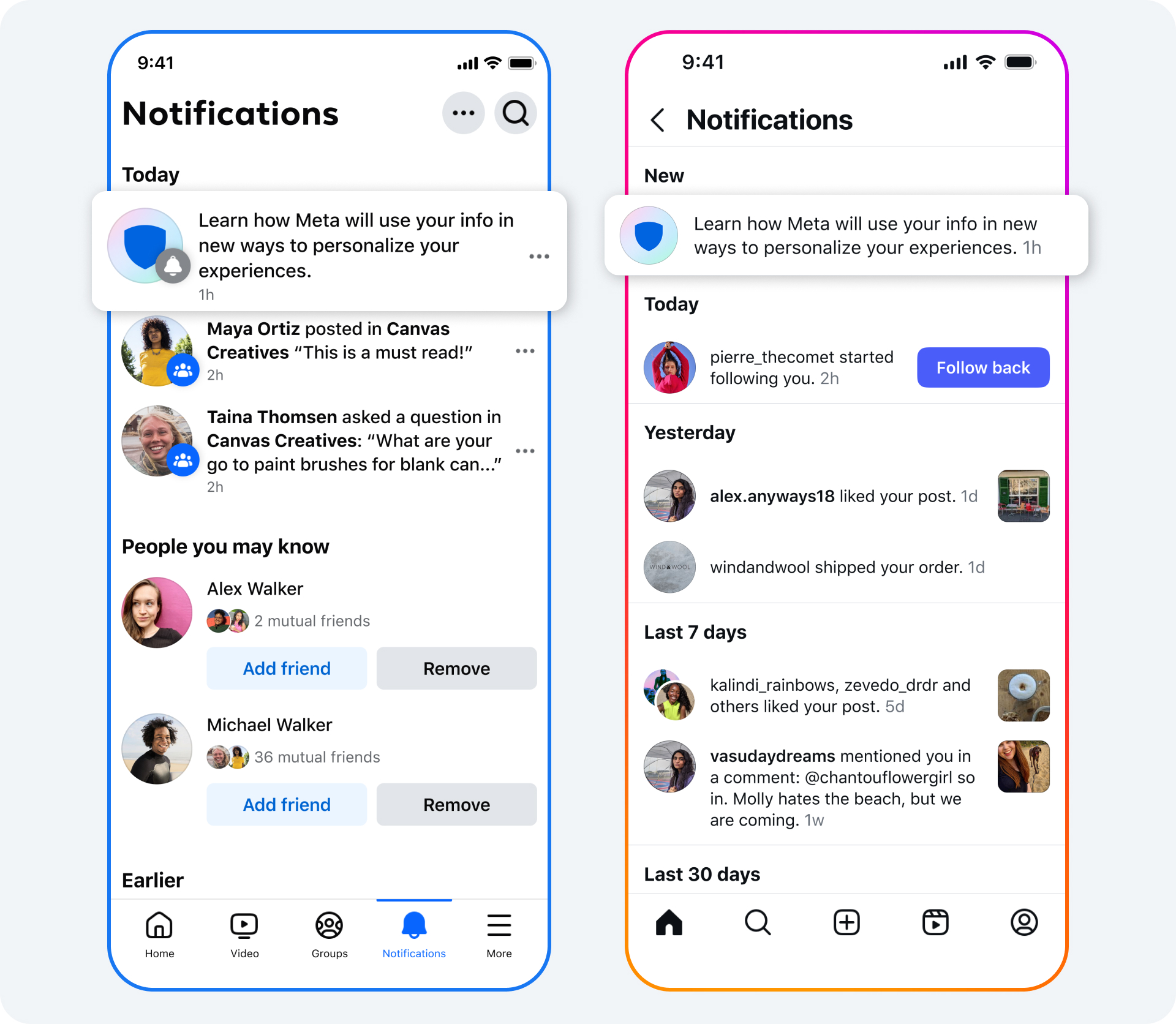
Spotify Unveils New Advertising Partnerships & Updates (link/link)
- As part of the Co’s efforts to make advertising on Spotify easier for advertisers, the Co annc’d…
- Enhancements to Spotify Ad Exchange…for the first time, advertisers using Amazon DSP can now access Spotify’s audio & video inventory: By combining Amazon’s “trillions” of shopping, streaming, and browsing data with Spotify’s 696mn monthly users, the partnership gives advertisers scaled reach and full-funnel measurement and attribution capabilities; The Co is also expanding their programmatic “ecosystem” with key updates:
- ID5 partnership: Boosts programmatic campaign addressability across Europe, helping advertisers better reach music and podcast audiences
- Yahoo DSP integration: Enables direct buying of Spotify inventory through Yahoo DSP, improving conversion rates by ~70% and cutting cost per action by ~90%, while enhancing targeting via Yahoo ConnectID
- Publisher opportunities: Starting in 2026, Megaphone-hosted podcast publishers can set up private marketplace deals through Spotify Ad Exchange, expanding monetization options
- Enhancements to Spotify Ads Manager…adding new tools and partnerships to help advertisers of “all sizes create, optimize, and measure their campaigns”
- Smartly partnership: Integrates Spotify Ads Manager into Smartly, giving advertisers expanded access to audio, display, and video inventory with AI-powered creative, automation, and measurement tools
- Split Testing tool: Lets advertisers run controlled experiments to identify top-performing creative elements and optimize for key metrics like completion rate, CTR, CPC, and cost per conversion
- QUANTIFYABLE RESULTS…Since the Co’s Ad Exchange launch in April, the number of advertisers using it has risen by 142%
- On Ads Manager, Web Traffic campaigns delivered 103% higher page view rates than brand awareness campaigns, while App Install campaigns achieve 4.3× higher install rates than non-optimized campaigns
Grab Bag: EchoStar Stock Soars / CoreWeave Signs New Cloud Order / AI Actress Tilly Is Causing A Stir
- EchoStar stock soars after a potential Verizon spectrum sales talk (link): Press reports indicated that Verizon is in discussions to buy some of Echostar’s wireless spectrum
- The talks center on EchoStar’s AWS-3 licenses which are viewed as valuable for carrying 5G signals, according to sources
- EchoStar began selling assets last month as part of an FCC investigation into whether it was deploying wireless service fast enough
- In a regulatory filing, the company valued its AWS-3 spectrum at $9.8bn
- Sources noted that AT&T and SpaceX recently paid well above carrying values for similar licenses, though such a premium may not apply in a potential deal with Verizon
- Timing? The talks coincide with a planned federal auction of another portion of the AWS-3 band next year
-> EchoStar closed +7.9% after the news and the stock is up +236.7% YTD
- CoreWeave signed new $14.2bn cloud capacity order form with Meta (link/link)
- Agreement details: Provides Meta reserved cloud computing capacity; Orders can be amended by mutual agreement
- Financial commitment: Meta committed to pay up to ~$14.2bn through 14-Dec-31 and they also have the option to materially expand commitment through 2032 for additional capacity
-> CoreWeave closed +12% on Tuesday after the announcement, while Meta close down -1.2%
- AI actor Tilly Norwood gained traction and created outrage in Hollywood this week (link)
- Backstory: Dutch comedian Eline Van der Velden’s Co Xicoia first introduced Tilly Norwood (July 2025), she is entirely AI-generated, as Hollywood’s first “AI actor”
- SAG-AFTRA condemned the move: Stating that creativity must remain human-centered and arguing that Tilly is trained on actors’ work without permission or compensation
- Celebrities including Melissa Barrera and Natasha Lyonne publicly called for boycotts of any agency that signs the AI character, labeling the move “gross” and “deeply misguided”
- Van der Velden defended Tilly as a “creative work” and a new artistic genre, promoting the character at Zurich Summit; Tilly’s Instagram has already gained 33K+ followers
Stock Market Check
This Week's Other Curated News
Advertising/Ad Agencies/Ad Tech
- Omnicom & IPG annc’d that all regulatory approvals for their merger are complete except in Mexico & EU. The deal is expected to close by Dec. 31, 2025. Omnicom extended its exchange offers for IPG notes to Oct. 31. ~93.5% of $2.95bn IPG notes have been tendered. Amendments to IPG’s indentures will take effect post-merger. Risks include delays, rev impacts, and client loss. (Street Account)
- Google hired Lazard Inc. in 2020 to assess a potential sale of its ad exchange unit, court testimony revealed. A judge had earlier ruled the biz an illegal monopoly. Lazard reviewed the ad tech mkts and identified potential buyers incl. Oracle, Adobe, SAP, Salesforce, The Trade Desk, and PE firms like Blackstone, GTCR, Centerbridge, and GI Partners. (Bloomberg)
- Former FTC commissioner Alvaro Bedoya cautioned advertisers at Prog IO NY 2025 against targeting teens via gen AI and social media, citing lax safety, parasocial risks, and harmful data practices. He urged cos to rethink ad models w/minors, criticized consent-based tracking, and warned of regulatory scrutiny. Bedoya said AI chatbots need clear banners and protections to avoid abuse and mental health harm. (AdExchanger)
- IPG won Bayer’s $720mn global Consumer Health account, covering creative, production & media for brands like Aspirin & Claritin. The cont’d partnership starts Jan. 1, consolidating Bayer’s agency roster under one Co to boost efficiency via AI. FCB led the pitch. IPG’s upcoming merger w/ Omnicom, FTC-cleared, may expand capabilities. Bayer praised IPG’s data-driven, tech-enabled approach. (Adweek)
- U.S. ad spending fell 3.1% in Aug., marking a 2nd straight monthly decline per Guideline’s Ad Market Index. National TV ad spend dropped 20.2% in Aug. and 25% in Jul. vs. 2024, partly due to tough comps from Olympic coverage. Excl. Olympics, ad spend grew 2% YoY in Jul.–Aug., but total spend incl. Games declined 4%, signaling decelerating growth in mkts despite political ad boosts. (MediaPost)
Artificial Intelligence/Machine Learning
- AI startups raised $73. 1bn in Q1 2025, making up 57.9% of VC funding. GIC’s Bryan Yeo warned of a hype bubble, noting early-stage cos w/ AI labels get high valuations despite low rev. TPG’s Todd Sisitsky cited firms hitting $100mn rev in months, while others reach $400mn–$1.2bn per employee. Investors fear missing out, but tech may not meet mkts’ lofty expectations amid ongoing AI capex boom. (Reuters)
- Uber has annc’d the acquisition of Belgian startup Segments. ai, which specializes in data labeling for autonomous tech like self-driving cars and drones. Founded by Bert De Brabandere and Otto Debals, and backed by Y Combinator, the team will join Uber AI Solutions. The deal supports Uber’s AI training push; financial terms weren’t disclosed. (Tech in Asia)
- Perplexity annc’d its $200/mo AI-native browser Comet is now free globally w/ rate limits, aiming to fight low-quality internet slop. Comet, launched in Jul., summarizes pages & aids research. A $5 Comet Plus add-on offers access to CNN, WaPo, Fortune, etc., sharing 80% rev w/ publishers. Despite lawsuits from Dow Jones & NY Post, Perplexity denies content theft. CEO Srinivas sees Comet as a personal AI assistant, not just a Chrome rival. (Business Insider)
- OpenAI finalized a $6.6bn secondary share sale at a $500bn valuation, letting eligible staff sell shares. Though $10.3bn was authorized, lower uptake is seen as confidence in cos future. Investors include SoftBank, MGX, and T. Rowe Price. The move, OpenAI’s 2nd tender in a yr, aims to retain talent amid fierce AI hiring, w/o going public. OpenAI now tops SpaceX as most valuable private Co. (CNBC)
- Salesforce annc’d Agentforce Vibes, an AI-powered dev tool enabling autonomous app creation w/ enterprise-grade security. Vibe Codey, its AI agent, integrates w/ cos’ existing Salesforce setups, reusing code and guidelines. Built on Cline’s VS Code extension, it supports MCP. Offered free for now, it uses GPT-5 for 50 daily requests/org, then Qwen 3.0. Vibe coding mkts remain hot despite tight margins. (TechCrunch)
- Apple denied harming Elon Musk’s xAI by teaming w/OpenAI for iPhone’s genAI features. In a filing, Apple said Musk’s antitrust claims are “speculation on speculation.” Apple argued it can choose partners based on quality, privacy, and feasibility, and plans to work w/other genAI chatbots. Musk’s Co seeks billions in damages, alleging consumer harm and stifled innovation. (CNBC TV18)
- Citigroup raised its AI infra spend forecast by Big Tech to exceed $2. 8tn by 2029, citing early hyperscaler investments and rising enterprise demand. AI capex may hit $490bn by end-2026. Hyperscalers like Microsoft, Amazon, and Alphabet face cash flow pressure, borrowing to fund ~$50bn/GW compute costs. Citi sees 55GW needed by 2030, w/$1.4tn in U.S. alone. Firms like Eli Lilly, Hitachi, and Wolters Kluwer validate AI’s biz value. (Reuters)
- Meta annc’d plans to acquire chip startup Rivos to boost its in-house semiconductor efforts. Rivos, backed by Intel and focused on RISC-V architecture, brings AI full-stack expertise. Meta aims to expand its MTIA chip line. Financial terms weren’t disclosed. Rivos was near ~$2bn valuation. Meta, a major customer, seeks to cut AI infra costs. Bloomberg first reported the deal. (Reuters)
- OpenAI generated ~$4. 3bn rev in H1 2025, marking 16% growth vs. full-yr 2024. The Co burned $2.5bn, mainly on R&D for AI and ChatGPT. Total R&D spend hit $6.7bn. OpenAI holds ~$17.5bn in cash/securities and aims for $13bn full-yr rev, $8.5bn burn. Nvidia annc’d plans to invest up to $100bn and supply data-center chips. A potential $500bn valuation stock sale was discussed in Aug. (Reuters)
- Debt is powering the next wave of the AI boom. OpenAI signed a $300bn, 5-yr deal w/ Oracle to build AI infrastructure, requiring Oracle to borrow ~$25bn/yr. CoreWeave & Nebius also rely on debt for massive AI contracts. Despite investor optimism, analysts warn of risks: OpenAI must hit $300bn rev by 2030 (vs. ~$12bn now). Moody’s flagged Oracle’s credit outlook as negative. The AI biz model is starting to resemble the dot-com bubble. (WSJ)
Audio/Music/Podcast
- Universal Music (UMG) and Warner Music (WMG) are nearing AI licensing deals, per FT. Talks involve start-ups like ElevenLabs, Stability AI, Suno, Udio, Klay Vision, and tech giants incl. Google and Spotify. Labels aim to license songs for AI-generated tracks and model training, seeking a streaming-like micropayment structure. Deals may be finalized in weeks. (Reuters)
Broadcast/Cable Networks
- YouTube TV dropped Univision and other TelevisaUnivision nets after contract talks failed. Google cited low viewership on its live TV svs, while TelevisaUnivision called the move “discriminatory,” especially during Hispanic Heritage Month. Google offered a $6 credit to Spanish Base subs. Lawmakers like Sen. Ted Cruz criticized the decision, urging Google to restore access. (Variety)
Cable/Pay-TV/Wireless
- HPE cont’d its push into private 5G by replacing Cisco as the networking provider at The Ryder Cup. The Co deployed a massive temp network across 1,500 acres using its own 5G radios, CBRS nodes, and AI svs. Safari Solutions laid fiber for Wi-Fi/cellular access. Over 5,000 active clients and 719 devices were supported, w/~250,000 visitors expected. The setup showcased HPE’s tech for smart, temp cities. (Fierce Network)
- T-Mobile users report long delays and resistance when trying to cancel old smartwatch or tablet lines. Despite options like T-Life or T-Force, many face ~1hr calls w/ reps pushing to retain lines. Reddit posts cite CS metrics tied to cancellations, affecting bonuses. Frustration grows as even employees struggle. Though not unique to T-Mobile, such tactics risk damaging trust and driving users away. (PhoneArena)
- Comcast’s Dave Watson called cable the US’s “fourth carrier” at SCTE TECH EXPO, citing a ~$160bn total addressable mkts when bundling broadband w/ wireless. FCC Chair Carr echoed cable’s growing wireless role. Comcast annc’d Mike Cavanaugh as co-CEO starting Jan. Watson noted pricing revamps, biz svs potential, and the need for better consumer marketing amid broadband declines and structural changes. (Fierce Network)
- State broadband leaders face tight deadlines and staffing shortages in revising BEAD proposals for NTIA. The “curing” process demands rapid resubmissions—sometimes <12 hours. NTIA’s push for cost-cutting and permitting via NEPA adds pressure. States now act as joint lead agencies, a new role for many. Challenges include pole access and railroad rules, w/ ISPs also under strain. (Fierce Network)
Capital Market Updates
- Alibaba repurchased 17mn ordinary shares (~2mn ADSs) for $241mn in the quarter ended Sept. 30, 2025, under its share buyback program. Outstanding shares fell by 3mn (400K ADSs) vs. Jun. 30, incl. ESOP impact, marking a 0.02% drop. As of Sept. 30, 18.552bn shares were outstanding. The Co’s repurchase program has $19.1bn remaining, valid till Mar. 2027. (Futunn News)
- Red Bull GmbH annc’d a €1. 33bn dividend on 2024 results, its highest since 2021, incl. €500mn from retained earnings. Despite a 5.6% drop in net income (€1.65bn), rev rose 6.4% to €11.2bn, w/ 12.7bn cans sold. Mark Mateschitz & Yoovidhya family (each 49% owners) will get €648mn. Chalerm Yoovidhya’s 2% stake was transferred to Fides Trustees. Sponsorship spend topped €1bn in 2022. (MSN)
- Nike posted surprise 1% rev growth in Q1, beating estimates w/$11. 72bn, but warned of sluggish holiday sales and $1.5bn tariff hit. EPS fell to $0.49, net income dropped 31%. Wholesale and North America revs rose, but China, Converse, and direct biz declined. CEO Hill cited ongoing turnaround efforts, inventory clearance, and restructuring. NikeSKIMS launch saw strong early response. (CNBC)
- Megadeals surged to $1. 26tn in Q3, up 40% YoY, despite a 16% drop in deal volume to 8,912—lowest in 20 yrs. Avg. deal size hit $141.4mn. Cross-border M&A rose 44% to $931bn. IPOs revived w/ StubHub’s $800mn & Klarna’s $1.37bn debuts. Hong Kong IPOs hit $23bn amid U.S. delisting threats. AI & crypto drove activity. Union Pacific’s $88.18bn buy of Norfolk Southern led Q3 deals. (Reuters)
- US equity capital mkts saw a standout Q3, w/ cos and shareholders raising over $255bn in the first 9 months—most since 2021. IPOs surged, and momentum in convertible bonds grew as investors embraced risk amid a bull run in small-caps and crypto. Notable deals included Figma Inc. London fell out of the top 20 IPO mkts, overtaken by Mexico and Singapore. Fermi Inc. aims to raise $550mn via IPO. (The Edge Malaysia)
Cloud/DataCenters/IT Infrastructure
- Buyout firm Zegona is exploring a potential sale of five data centers from its acquisition of Vodafone Spain. The assets, valued at ~€100mn ($117mn), are under review w/ advisors. Vodafone Spain, fully owned by Zegona but retaining the British brand, declined comment. Deliberations are ongoing; Zegona may opt to retain the assets. (. (Investing.com)
- AI-driven data centers are causing US power bills to surge, w/ wholesale electricity prices up to 267% higher near major facilities. Bloomberg’s analysis shows ~70% of price hikes occur within 50 miles of data centers. Tech cos like Nvidia, Microsoft, and Oracle annc’d multi-bn investments, fueling demand. Utilities and regulators now debate fair cost-sharing as consumers face rising bills and grid strain. (Bloomberg)
Crypto/Blockchain/web3/NFTs
- Robinhood CEO Vlad Tenev, speaking at TokenWorld 2049 said tokenization will reshape finance. Despite criticism that tokens aren’t real equity, he believes the tech will merge crypto w/ traditional finance. Robinhood annc’d tokenized equity access in Europe earlier this yr, boosting its stock. Tenev sees full adoption in 5–10 yrs, calling tokenization “a freight train.” (Yahoo Finance)
- Tether Holdings SA will use Rumble Inc. to distribute its new USAT token in the US crypto mkts. Rumble, w/51mn monthly users, will launch a wallet featuring USAT & other stablecoins. Tether, which holds a 48% stake in Rumble, aims to expand its stablecoin & tokenized gold biz. Flush w/cash after $4.9bn Q2 profit, the Co is investing in AI, including a translation app for emerging mkts. Rumble CEO confirmed the partnership. (Bloomberg)
- Deutsche Bank analysts say Bitcoin could join gold on central bank balance sheets by 2030 amid rising geopolitical shifts. Trump’s strategic Bitcoin reserve plan has reignited debate on institutional adoption. Bitcoin’s low correlation to traditional assets boosts its store-of-value appeal. (Yahoo Finance)
- A CoinGecko survey shows only 55% of new crypto users started w/ Bitcoin, while 10% never bought it. Altcoins like ETH, SOL, and memecoins attract newcomers due to lower unit costs and strong communities. Experts say this reflects a maturing crypto mkts, though Bitcoin remains a key anchor. (Cointelegraph)
Cybersecurity/Security
- Oracle annc’d hackers are extorting E-Biz Suite users via emails, exploiting known vulnerabilities. Google flagged the high-volume campaign, linked to ransomware group cl0p. Demands range from millions to $50mn. Oracle urged upgrades but didn’t disclose affected client count. Cl0p, a Russia-linked ransomware-as-a-svc group, declined detail. Trend Micro called it a “trendsetter” in evolving tactics. (Reuters)
- Microsoft annc’d it used AI to expose a “zero day” flaw in biosecurity screening software meant to block DNA orders for toxins. Using generative protein models like EvoDiff, the team digitally redesigned toxins to evade detection while retaining function. Though systems were patched, some AI-made molecules still bypass safeguards. Experts warn of an arms race in biosecurity and urge stronger screening protocols. (MIT Technology Review)
- Americans lead globally in scam encounters, receiving ~100/month incl. emails, calls & texts, per Ping Identity/Talker Research.K. follows w/84; Singapore sees 40. 23% of global consumers fell victim to fraud. AI-driven phishing (39%) & fake apps (38%) top scam fears. Despite rising concern, only 23% feel confident identifying scams. Ping Identity urges stronger security like passkeys over passwords. Survey ran Jul. 28–Aug. 11, 2025. (MediaPost)
eCommerce/Social Commerce/Retail
- Shein annc’d plans to open permanent stores in France starting Nov. , partnering w/ Société des Grands Magasins. Locations include BHV Paris and Galeries Lafayette in six cities. Move sparked backlash from Galeries Lafayette, Paris Mayor Hidalgo, and fashion groups over Shein’s ultra fast fashion model. Critics cite conflict w/ sustainable local commerce and rising pressure from draft laws targeting fast fashion. (Reuters)
- Walmart annc’d nationwide rollout of Wiliot’s Bluetooth-powered Pixel sensors to automate grocery tracking across 4,600 stores & 40 centers by end of next yr. Sensors transmit location, condition & temp data, feeding Walmart’s AI systems. AI-led automation has boosted ops efficiency, w/ rev up $150bn in 5 yrs. Despite tech advances, Walmart’s 2.1mn workforce remains flat, aligning w/ broader employment trends. (The Daily Upside)
- Instacart (CART) & Advantage Solutions (ADV) annc’d a strategic partnership to help CPGs improve in-store execution. Combining Instacart’s tech & ~600K shoppers w/ Advantage’s retail svs, the model enables real-time audits, alerts, & follow-ups to boost shelf visibility, reduce out-of-stocks, & validate execution. Pilot launched; expansion planned for 2026. (Street Account)
- Uber Eats annc’d tie-ups w/ US regional grocers incl. Citarella, Rouses Mkts, Town & Country, Wild Fork & Rosauers to boost grocery delivery. Citarella praised the move as elevating customer experience. On-demand delivery is a key focus at the 2025 RTIH Innovation Awards, which celebrate global retail tech. Finalists showcase adj supply chains, immersive retail, green tech & next-gen loyalty. (Retail Tech Innovation Hub)
- Kroger annc’d a nationwide expansion of its DoorDash partnership, enabling fast grocery delivery from ~2,700 stores. Customers can access fresh food, Our Brands items, and household essentials w/ loyalty discounts via DoorDash. The collab aims to attract new households, boost retail media, and enhance delivery tech. DoorDash serves 42mn+ global users monthly. (Kroger)
- Amazon annc’d Amazon Grocery, a new private label food brand uniting Amazon Fresh & Happy Belly. Offering 1,000+ items—milk, meat, snacks, pantry staples—mostly under $5, rated 4★+. Packaging is eco-friendly w/ 50% less plastic. Rev growth cont’d w/ 15% more private-brand buys in 2024. New items incl. cinnamon rolls, pizza dough, lemonade. Products available via Amazon.com & Amazon Fresh. (Street Account)
Electric & Autonomous Vehicles
- Waymo’s NYC robotaxi testing permit, initially valid till Sept. , was extended through end-2025, allowing up to 8 Jaguar I-Pace AVs w/ safety drivers in Manhattan & Downtown Brooklyn. The Co is exempt from NYC’s one-hand-on-wheel rule. Though Waymo aims to launch a commercial svs, it still needs TLC licenses. No framework yet for driverless ops. Expansion to Miami, D.C., Dallas, Denver & Nashville planned next yr. (TechCrunch)
Film/Studio/Content/IP/Talent
- SAG-AFTRA condemned AI-generated ‘actress’ Tilly Norwood, annc’d by Particle6 at a Zurich summit, urging creativity stay human-centered. Despite producer claims of rising studio interest, USC tech expert doubts serious demand. Tilly, featured in a parody video w/16 AI characters, sparked backlash over use of performers’ work w/o consent. SAG-AFTRA insists synthetics aren’t actors. (Reuters)
- Taylor Swift’s “The Official Release Party of a Showgirl” is tracking a $35mn–$40mn debut, cont’d success after 2023’s $93mn “Eras Tour. ” The 89-min event features a new video, BTS footage, and ties to her 12th album. Competing titles include “The Smashing Machine” ($8mn–$15mn) and DiCaprio’s “One Battle After Another” ($10mn–$11mn). Disney’s “Avatar” re-release targets $3mn–$4mn. (Variety)
- Trump annc’d a 100% tariff on foreign-made films entering the U. S., threatening Hollywood’s global biz model. Studios face uncertainty over enforcement and legal authority. Analysts warn of rising costs likely passed to consumers. U.S. film industry had a $15.3bn trade surplus in 2023, w/$22.6bn in exports. Overseas production hubs and co-productions may be impacted, risking jobs and rev. (Reuters)
- Hollywood faces rising costs and global competition, prompting studios to film abroad for tax perks and cheaper labor. Trump annc’d a 100% tariff on foreign-made films, sparking debate over enforcement and impact. Domestic hubs like Georgia thrive w/ incentives, while Canada, Australia, and others gain share. Experts urge better U.S. tax structures over tariffs to revive local production and sound stage use. (CNBC)
- Disney sent a cease & desist to Character.AI demanding it stop using copyrighted characters. The Co cited brand damage risks beyond financial harm. Separately, Disney, NBCU & WBD sued Chinese AI firm MiniMax for large-scale piracy. These moves reflect Hollywood’s cont’d push to protect IP amid rising AI threats, w/ lawsuits & deals reshaping how content is created & monetized. (Axios)
- Netflix leads the 2025 International Emmy noms w/ 7 entries incl. “Love is Blind: Habibi.” The Intl. Academy annc’d 64 nominees across 16 categories from a record 26 countries. U.K. tops w/ 12 noms. Nominees will gather in NYC for the Intl. Emmy World TV Festival; winners revealed at the 53rd Intl. (Variety)
- MFE, the Italian media group, is in exclusive talks to acquire a “relevant stake” in Portugal’s Impresa, owner of SIC and Expresso. Impresa’s rev in 2024 was ~€182.3mn, w/ EBITDA up 19.5% to €18.4mn, despite a €66.2mn net loss. The deal would expand MFE’s Iberian footprint and pan-European ambitions, following its 75%+ stake in Germany’s ProSiebenSat.1. (Broadband TV News)
HealthTech/Wellness
- GoodRx stock jumped 18% after CEO Wendy Barnes hinted at a potential TrumpRx partnership. She said the Co is in talks w/ the Trump admin on affordable drug pricing. Trump annc’d a plan including a direct-to-consumer site and Pfizer price cuts. GoodRx’s platform aligns w/ the initiative, suggesting possible collaboration. Shares rose as much as 27% intraday before closing higher. (Yahoo Finance)
- Alphabet Inc. plans to sell or spin off its life sciences unit Verily, per testimony by Google VP Heather Adkins. Verily has spent ~2.5 yrs transitioning from Google’s infrastructure to Google Cloud, aiming to become independent. The unit, focused on health svs and research tech, may soon cease to be an Alphabet entity. This marks the first public confirmation of Verily’s separation plans. (Investing.com)
Last Mile Transportation/Delivery
- Amazon will resume Prime Air drone deliveries in Arizona after a crash involving two drones and a crane. The incident halted ops in Phoenix’s West Valley, its only commercial mkts. FAA and NTSB investigations are ongoing. Amazon’s internal review found no tech faults, but added visual inspections. Despite past setbacks, incl. exec exits and a Dec. 2024 crash, the Co aims to deliver 500mn packages/yr by decade-end. (TechCrunch)
- DoorDash annc’d Dot, a 4-wheeled autonomous robot that travels 20 mph and carries 30 lbs, now testing in Tempe & Mesa, Ariz. Co also unveiled a smart scale to reduce missing-item claims. Dot uses cameras, radar & lidar, runs 6 hrs on swappable battery, and may replace lidar w/ cheaper units. Co plans mkts expansion, hiring ex-Cruise staff. App updates include “Going Out” feature post $1.2bn SevenRooms deal. (Los Angeles Times)
Macro Updates
- U.S. cos shed 32,000 jobs in Sept., per ADP, vs. expected 45,000 growth—signaling labor mkts weakness. Govt shutdown halted BLS report. Small cos (≤49 staff) were hit hardest. Leisure, hospitality, prof. svs & financial activities saw declines. Pay gains for job-changers slowed to 6.6%; job-stayers saw 4.5% growth. Large cos (>500 staff) posted gains. ADP revised Aug. growth from 54,000 to a $3,000 loss. (NBC News)
Media Conglomerates
- Disney’s CEO succession race is down to Josh D’Amaro and Dana Walden. D’Amaro, head of Disney Experiences, is seen as the frontrunner due to his rising profile and strong rev performance. His unit posted $8.12bn profit in 9M FY25, ~33% more than other divisions. Walden’s candidacy may be hurt by controversy. Disney plans $60bn expansion incl. Middle East park. Iger to exit by early 2026. (New York Post)
- Warner Bros. Discovery (WBD) fell 3% amid doubts over a friendly tie-up w/ Paramount Skydance. CNBC’s David Faber said Paramount may annc’d a cash-heavy bid, but WBD mgmt. may resist, forcing Paramount to go to shareholders. Prior reports suggested a $22–$24/share offer. KeyBanc recently downgraded WBD due to merger risks. Mkts remain cautious as both cos explore strategic options in a shifting media biz. (Yahoo Finance)
- Comcast annc’d Michael Cavanagh as co-CEO alongside Brian Roberts, its longtime chief exec & chairman. Roberts called Cavanagh “ideal” to lead the Co’s growth pivot. The move signals a strategic shift aimed at driving biz expansion across Comcast’s units. Cavanagh’s elevation reflects confidence in his leadership amid evolving mkts & tech landscape. The dual leadership structure begins immediately. (WSJ)
Online Marketplaces/Learning (Real Estate/Education/Jobs)
- Hertz Car Sales annc’d a fully online car-buying platform at HertzCarSales.com, expanding its retail biz via a cont’d collab w/ Amazon Autos. Customers can browse, finance, trade-in, and finalize purchases online. Backed by NFL legend Tom Brady’s Oct. 1 ad campaign, the move supports Hertz’s strategy to grow retail channels and enhance digital svs, offering ~45 locations and thousands of inspected, certified vehicles. (Street Account)
- Yelp annc’d DoorDash as its preferred delivery partner, merging Yelp’s trusted reviews w/DoorDash’s vast network of 500K+ restaurants. Diners using Yelp can now order via DoorDash, enhancing convenience and choice. Yelp will retain other delivery partners for non-DoorDash merchants to ensure broad access. The collab aims to boost local biz visibility and streamline meal ordering. (Street Account)
Regulatory
- A U.S. judge denied Apple, Google & Meta’s bid to dismiss lawsuits alleging they promoted illegal gambling via casino-style apps. Plaintiffs claim cos earned ~$2bn in commissions, causing addiction & mental harm. Section 230 immunity was rejected; some state law claims were dismissed, but most consumer protection claims cont’d. Immediate appeals allowed due to issue importance. (Reuters)
- A Dutch court ordered Meta to let Facebook and Instagram users in the Netherlands easily choose a chronological timeline, citing violations of the EU’s Digital Services Act. Meta must offer a “direct and simple” option w/o reverting to algorithmic feeds. The ruling, driven by Bits of Freedom, aims to protect user autonomy ahead of the Oct. 29 election. Meta plans to appeal, claiming it already complies w/ the law. (NL Times)
- Trump annc’d 10% tariffs on timber/lumber and 25% on cabinets/furniture, citing nat’l security under Section 232. Duties begin Oct. 14, rising to 30–50% on Jan. 1 for non-compliant nations. Canada, Mexico, Vietnam face impact; UK, EU, Japan get capped rates. Chamber of Commerce opposes move, warning of higher costs, disrupted supply chains, and harm to U.S. wood industry and infrastructure. (Reuters)
- The U. S. govt shut down after midnight as Congress failed to pass stopgap funding. GOP and Dems blamed each other, w/Dems demanding ACA tax credit extensions. Speaker Johnson called Dems’ stance reckless; Jeffries said GOP chose shutdown. ~750K federal workers face furloughs, costing ~$400mn/day. Biz Roundtable urged swift action to reopen govt and avoid harm to cos, workers, and families. (CNBC)
- CA Gov Newsom signed SB 53, a first-in-nation AI safety law requiring major AI cos to disclose safety protocols & report incidents like cyberattacks. Backed by OpenAI, Meta & Anthropic, the law includes whistleblower protections & lays groundwork for CalCompute. It aims to balance innovation w/ public trust. Critics warn it may stifle startups. The move sets precedent for state-led AI regulation. (Politico)
Satellite/Space
- T-Mobile annc’d expanded support for its cellular Starlink (T-Satellite), enabling satellite data on 42 phone models incl. Samsung Galaxy S25 series & iPhone SE. Initially limited to SMS/location, T-Satellite now powers WhatsApp, Maps, X & Yahoo Mail. Co aims seamless handoff b/w terrestrial & satellite networks. SpaceX plans 15,000 satellites & a $17bn spectrum deal to boost throughput 20x (PCMag)
- Bell and AST SpaceMobile annc’d Canada’s 1st successful space-based direct-to-cell VoLTE voice call, video streaming, and broadband data using unmodified smartphones. Conducted in New Brunswick, the demo used Bell’s low-band spectrum and sovereign gateway. Tech aims to bridge gaps in remote regions, w/ full deployment planned for 2026, covering 5.7mn sq. km and supporting emergency svs, remote ops, and recreation. (Street Account)
- AST SpaceMobile annc’d BlueBird 6 (FM1) has completed final testing and ships to India, w/ launch expected before Christmas. BlueBird 7 ships to Cape Canaveral in Oct.; BlueBirds 8–16 in production w/ launches every 1–2 months through 2026. Co aims for 45–60 satellites in orbit by end-2026. Barclays raised target to $60/share citing AST’s 2,400 sq ft phased array tech and 120 Mbps speeds. (Advanced Television)
Social/Digital Media
- Yahoo is in advanced talks to sell AOL to Italy’s Bending Spoons for ~$1. 4bn, sources say. The Milan-based tech Co, known for revamping struggling firms, recently annc’d deals incl. Vimeo ($1.38bn) and WeTransfer. AOL’s rev comes from ads and svs like LifeLock, LastPass, McAfee. Its site saw 20% YoY traffic growth among users aged 25–54. Bending Spoons may IPO, w/ 300mn monthly users. (Reuters)
- YouTube dominates AI search, cited 200x more than rivals like TikTok or Vimeo, per BrightEdge data (May 2024–Sept. 2025). It holds a 20% citation share across AI platforms, 29.5% in Google AI Overviews, surpassing Mayo Clinic (12.5%). Despite a -32.8% dip, it remains No. 1. Citations grew 100% weekly in ChatGPT. Tutorials, pricing, and reviews trigger citations; abstract or strategic queries show low YouTube presence. (MediaPost)
- Meta annc’d communities on Threads to connect users w/ shared interests. These public spaces let users join convos on topics like music, sports, TV, etc. Users can search or tap tags to find them. Each community has a custom Like emoji and will show in feeds/profile once joined. Meta plans badges for top contributors and improved post ranking. Feature is in testing w/ ~100 topics. (Digit)
- Trust in media hit an all-time low of 28%, per Gallup, w/ only 51% of Democrats, 27% of Independents, and 8% of Republicans expressing confidence. Age impacts trust: 69% of Democrats aged 65+ trust media vs. just 12% of young Republicans. Since the 1970s, trust has dropped from ~70% to below 30%, reflecting deepening skepticism across political and age groups. (MediaPost)
- Snap annc’d Memories Storage Plans for Snapchat users exceeding 5GB. New tiers include 100GB for $1.99/mo, 250GB for Snapchat+ ($3.99/mo), and 5TB for Platinum ($15.99/mo). Users over 5GB get 1 yr of temp storage. Snap says most users won’t be affected. This shift from unlimited to paid storage follows its Lens+ ($9/mo) rollout, reflecting a broader push into monetized svs. (Engadget)
Sports/Sports Betting
- Paramount+ will be exclusive home of Zuffa Boxing across U. S., Canada & Latin America starting Jan. 2026. The long-term deal w/ TKO & Sela includes 12 events in yr one, expanding later. Select bouts may air on CBS. Led by Dana White, Zuffa aims to revamp boxing. Paramount Chair Cindy Holland said the pact boosts premium sports content & fan engagement. Further fight details to be annc’d. (Paramount)
- The WNBA has signed an 11-year media rights deal with Versant to air regular-season and select playoff games on USA Network starting in 2026. The agreement, which runs through 2036, builds on the league’s 2024 national media deals with Disney, Amazon Prime, and NBC (worth roughly $200 million annually), though financial terms of this new deal weren’t disclosed. USA Network will broadcast at least 50 games per year, anchored by Wednesday night doubleheaders plus pre- and post-game studio coverage, creating a weekly primetime destination for fans. (The New York Times)
Tech Hardware
- Apple has shelved its lower-cost Vision Pro headset (N100) to focus on AI smart glasses aimed at rivaling Meta. Two models are in dev: N50 (no display, works w/iPhone) previewing in 2025, and a display-equipped version fast-tracked for release. Meta leads w/Ray-Ban Meta; Google and OpenAI also entering the space. Apple bets AI glasses will drive the next-gen wearable tech cycle. (Yahoo Finance)
- A ~$bn deal to export Nvidia AI chips to UAE, signed ~5 mos ago, remains stalled, per WSJ. The delay has frustrated Nvidia CEO Jensen Huang and senior US officials. The agreement, backed by Trump, aimed to boost tech ties, but bureaucratic hurdles persist. The situation highlights tensions in AI chip mkts and geopolitical biz dynamics. (Reuters)
Towers/Fiber
- Verizon annc’d a high-rent relocation plan targeting American Tower (AMT), its largest landlord, ahead of a key lease expiry. Analyst Atkin downgraded AMT, citing muted carrier activity despite T-Mobile’s colocations to meet FCC rules. Rev/adj EBITDA for 2025 forecast at $10.523bn/$7.066bn; 2026 at $11.071bn/$7.459bn. AFFO/share est. at $10.63 (2025) and $11.65 (2026), above consensus. (Yahoo Finance)
- 80% of AlixPartners survey respondents predict rising M&A in fiber mkts over the next yr, esp. targeting cos w/ <500K passings. Operators worry about ARPU & FWA/cable competition, while investors focus on construction. Deals like Verizon–Frontier ($20bn) & AT&T–Lumen ($5.75bn) reflect this trend. Consolidation phase may last ~2 yrs, driven by scale, efficiency & fewer profitable deployment zones. (Fierce Network)
Video Games/Interactive Entertainment
- Microsoft annc’d Xbox Game Pass revamp: Ultimate now $29. 99/mo w/ 400+ titles, 75 day-one releases/yr, Ubisoft Plus Classics, Fortnite Crew, and $100/yr rewards. Premium ($14.99) adds PC games, cloud access, and $50/yr rewards. Essential ($9.99) expands to 50+ titles, PC/cloud access, and $25/yr rewards. PC Game Pass rises to $16.49 w/ 50 Ubisoft titles. Console prices also increasing. (The Verge)
- Xbox Cloud Gaming exits beta after 5 yrs, annc’d w/ 1440p support for select games/devices & bitrate boost to 27Mbps for Game Pass Ultimate users. streams were ~10Mbps; upgrade improves visuals. No confirmation on hardware changes. Cloud access expands to Essential & Premium tiers, beyond Ultimate. Microsoft aims to rival Nvidia’s GeForce Now, but 4K, higher frame rates may await next-gen console launch. (The Verge)
- Amazon annc’d a major overhaul of its Luna cloud-gaming svs, now included w/ Prime. The revamp adds AAA titles like Hogwarts Legacy and a new “GameNight” lineup of social party games, incl. Courtroom Chaos starring Snoop Dogg. Luna aims to simplify gaming for non-core users, offering ~50 games playable w/ smartphones or controllers, no console needed. Studio 5 will focus on quick-to-develop, social titles. (Variety)
- Epic Games reported a sharp rise in Epic Games Store installs on iOS after iOS 18. 6, simplified third-party app store installs—cutting steps from 15 to 6. Drop-off rates fell from 65% to ~25%. Epic claims Apple still violates the DMA, deterring devs. Google’s 12-step Android process also faces criticism, w/ over 50% failure rate due to a “deceptive UI,” per Epic. (The Verge)
- Roblox stock fell 4% amid concerns over slowing growth in core mkts. M Science’s Corey Barrett noted U.S. bookings growth dropped to low-30% YoY in Sept., down from 50%+ in Jul. due to back-to-school impact. While mobile DAU growth rose QoQ, Sept. gains were modest in U.S. & Asia-Pacific. Non-core mkts showed strong momentum, but core mkts’ deceleration surprised investors despite overall strong global engagement. (Yahoo Finance)
Video Streaming
- Amazon has shut down Freevee, its ad-supported streaming svc, merging it into Prime Video. Launched in 2019 as IMDb TV, Freevee peaked at 50mn users but struggled vs rivals like Tubi. Live channels now appear in Prime’s “Live TV” section. The move reflects Amazon’s strategy to streamline ops, boost rev, and adapt to shifting mkts. (Cord Cutters News)
- NBCUniversal & Google struck a multi-yr carriage deal, avoiding a YouTube TV blackout. NBCU’s full network lineup incl. NBC, Telemundo, Bravo, etc., remains on the platform. Peacock will be offered via YouTube’s Primetime Channels. Talks had stalled over fees & Peacock’s prominence, but a compromise was reached. The pact may shape future cos’ streaming & distribution deals amid rising mkts tension. (Broadband TV News)
- FOX Sports & Tubi annc’d they’ll stream the “John Madden Thanksgiving Celebration” NFL game in 4K for free on Tubi. This cont’d partnership builds on Super Bowl LIX’s record 24mn viewers. Tubi’s ad-supported model aims to expand access, enhance visuals, and honor Madden, boosting FOX’s sports streaming presence across mkts. (Cord Cutters News)
- Disney annc’d Hulu will replace Star on Disney+ in intl. mkts aiming to make Hulu its global general entertainment brand. This move precedes a fully unified Disney+ app next yr. UI updates include tabs for Disney+, Hulu & ESPN, improved recs, profile visibility, and mobile-first features. Star’s retirement in cos like India remains unclear. (The Verge)
- FAST usage rose 12% YoY as of Aug. , w/ avg. daily viewing up 16%, per Wurl’s 2025 CTV Trends Report. Reality TV led w/ 11% share, followed by dramas (9.4%) & documentaries (7.6%). Sports content lagged at 2.6%. Despite rising viewership, ad fill rates fell, signaling untapped advertiser potential. Wurl sees opportunity in smarter targeting & metadata-driven ad formats to boost engagement. (StreamTV Insider)
- Fubo shareholders approved its biz combo w/ Disney’s Hulu + Live TV. Post-closing, Disney will own ~70% of Fubo, which will continue trading as FUBO. Fubo’s mgmt, led by CEO David Gandler, will run the cont’d ops. Both svs will remain separate, offering diverse packages. The deal, annc’d in Jan. 2025, awaits regulatory nods and aims to expand consumer choice in live TV streaming. (Street Account)
- Disney lost ~1. 7mn paid streaming subs (Disney+, Hulu, ESPN) between Sept. 17–23 after ABC suspended Jimmy Kimmel’s show due to backlash from FCC’s Brendan Carr over Kimmel’s remarks on Charlie Kirk’s death. Nexstar & Sinclair preempted the show, citing insensitivity. Kimmel returned on Sept. 23; boycott ended Sept. 26. Nexstar also annc’d a $6.2bn Tegna merger in Aug., pending FCC approval. (KTLA)


